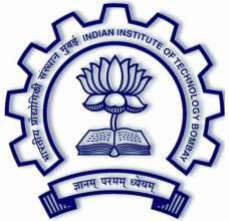
ENVIRONMENTAL SCIENCE AND
ENGINEERING DEPARTMENT
Bulletin on Courses of Study, 2022-23
M.Tech. / M.Sc. – Ph.D. / Ph.D. Programmes
(July’ 2022 – July’ 2023)
IIT Bombay
ESED Courses Bulletin 2022-2023 June 2022
Page 2 of 58
The post-graduate programmes and activities of the Environmental Science and
Engineering Department at IIT Bombay are designed to prepare the students for a
better understanding of various aspects of Environmental Science and Engineering.
The curriculum is focused towards addressing the needs and challenges of major
industrial sectors, governmental sectors, such as MHRD, MoEF, MoES, MoWR, CSIR,
DST, AICTE, and international agencies such as WB, UNDP/UNEP, UNIDO, OECD
and various other funding institutions.
The Department has a dedicated group of fifteen regular faculty members and one
emeritus professor with multi-disciplinary background and interests. B.Tech.-M.Tech.
Dual Degree, M.Sc.-Ph.D. Dual Degree, M.Tech. Degree and Ph.D. Degree in
Environmental Science and Engineering are offered by the Department. All the
programmes are interdisciplinary in nature and consist of course work followed by
research project. The course credit requirement in the Ph.D. programme varies
depending upon the background of the candidate.
Major ongoing research deals with contemporary topics such as (a) clean technologies
and industrial pollution prevention, (b) integrated treatment and disposal of hazardous
waste (c) bio-medical waste management (d) biodegradation of complex industrial
wastewaters (fertilizer, food, paper, coke oven, diary, distillery, petrochemicals) and
wastewaters containing halogenated aromatics, nitro-aromatics and other mixed
substrates (e) biodegradation of complex non-aqueous liquid pollutants (NAPLs e.g.
oil and tar) (f) development and application of toxicity/mutagenicity tests for emissions
and effluents (g) development of novel bioreactors (RBC, UASB) (h) air pollution
monitoring, modeling and health risk analysis (i) aerosol and PAH emission factors,
aerosol inventory, transport modeling and source apportionment (j) environmental
impact assessment of developmental projects (k) in-situ and ex-situ remediation of
contaminated groundwater and aquatic environments (l) environmental systems
simulation and optimization, (m) risk, frequency and vulnerability assessment to
natural/environmental hazards and (n) Analysis and mapping of hydroclimatic
extremes and flood modeling. Research projects are currently funded by agencies
such as DBT, DST, MHRD, AICTE, MoWR, MoES, CPCB, DPCC, MPCB, TSPCB,
MCGM and MNES.
The Department has computing facilities and well-equipped laboratory for
environmental monitoring and analysis. Some of the sophisticated instruments
available include: Inductive Coupled Plasma (ICP), High Performance Liquid
Chromatography (HPLC), Gas Chromatograph (GC), Ion Chromatograph (IC), Atomic
Absorption Spectrophotometer (AAS), Particle Size Analysers and Indoor Air Quality
Monitor, Luminometer, TOC Analyzer, UV-Vis Spectrophotometer, Gel Imaging
Systems and Respirable Dust Sampler.
The Department has ongoing research on Aerosol and Air Quality; Water Quality and
Water and Wastewater Treatment; Environmental Biotechnology; Clean Technology;
Environmental Impact Assessment; Novel Technologies for Industrial/Hazardous
Waste Management; Environmental Systems Modelling and Optimization; Risk,
Frequency and Vulnerability Assessment and Mapping. The Department has
established strong links and collaboration with leading industries, academic institutions
and national/international agencies by conducting sponsored research projects and
offering consultancy and technical services.
ESED Courses Bulletin 2022-2023 June 2022
Page 3 of 58
FACULTY
PROFESSOR
Subhankar Karmakar, Ph.D. (IISc Bangalore)
(Head of the Department)
Shyam R. Asolekar, Ph.D. (Univ. of Iowa, IA)
Virendra Sethi, Ph.D. (Univ. of Cincinnati, OH)
Anil Kumar Dikshit, Ph.D. (Cornell Univ., NY)
Sanjeev Chaudhari, Ph.D. (IIT Kanpur)
Suparna Mukherji, Ph.D. (Univ. of Michigan-Ann Arbor, MI)
Anurag Garg, Ph.D. (IIT Roorkee)
Munish K. Chandel, Ph.D. (IIT Delhi)
ASSOCIATE PROFESSOR
Harish C. Phuleria, Ph.D. (Univ. of Southern California, LA)
Amritanshu Shriwastav, Ph.D. (IIT Kanpur)
Swatantra Pratap Singh, Ph. D. (IIT Kanpur)
ASSISTANT PROFESSOR
Manoranjan Sahu, Ph.D. (Washington Univ., St. Louis, MO)
Abhishek Chakraborty, Ph.D. (IIT Kanpur)
V. S. Vamsi Botlaguduru, Ph.D. (Texas A&M University, TX)
Tabish Nawaz, Ph.D. (University of Massachusetts Dartmouth, MA)
Srinidhi Balasubramanian, Ph.D. (University of Illinois at Urbana-Champaign,
Champaign, IL)
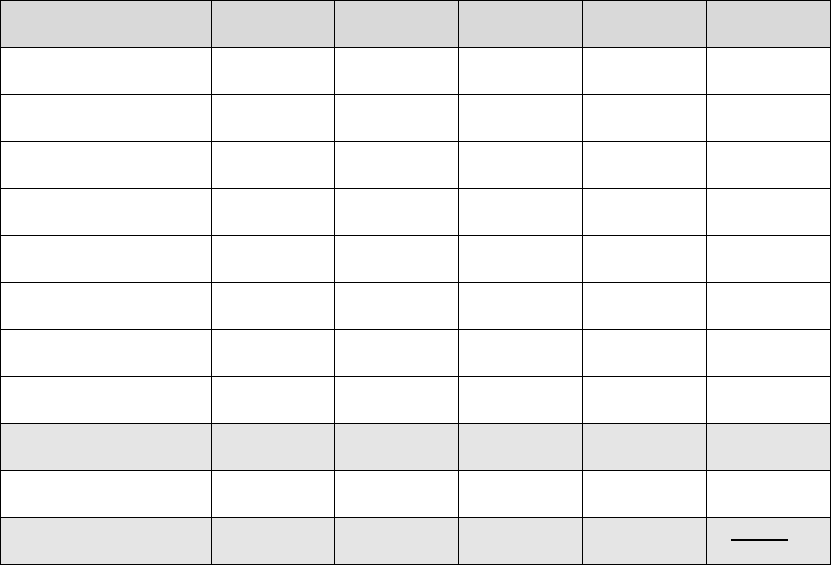
ESED Courses Bulletin 2022-2023 June 2022
Page 4 of 58
2-Year M.Tech. Programme
ENVIRONMENTAL SCIENCE AND ENGINEERING DEPARTMENT
COURSE STRUCTURE
Credits
Sem. I
Sem. II
Sem. III
Sem. IV
Total
Core Courses
36
12
-
-
48
Elective Courses
-
18
6
-
24
Institute Elective
-
6/0
0/6
-
6
Lab Course
6
3
-
-
9
Seminar
4
-
-
-
4
Communication
-
β (+6)
-
-
β (+6)
R & D Project
-
-
-
-
-
Training (P/NP)
-
-
-
-
-
Course Total
46
39/33 (+β)
6/12
-
91 (+β)
Project
-
-
42*
38
@
80
Total Credits
46
39/33
48/54*
38
171 (+β)
* Registration for the I stage project (ES 797) will be made in II semester (in January)
@
Registration for the II stage project (ES 798) will be made in III Semester (in November)
** The student can opt for outside department elective in second semester only in lieu of one
Department Elective.
β PP/NP Course, credits not counted

ESED Courses Bulletin 2022-2023 June 2022
Page 5 of 58
COURSE CURRICULA (M.Tech. / Ph.D.)
FIRST YEAR: First Semester (2022 entrants)
ES 631 Environmental Chemistry 3 0 0 6
ES 633 Environmental Microbiology and Ecology 3 0 0 6
ES 635 Air Pollution Science and Engineering 3 0 0 6
ES 637 Municipal Water and Wastewater Systems 3 0 0 6
ES 639 Physico-Chemical Treatment Technologies 3 0 0 6
ES 647 Municipal Solid and Biomedical Waste Management 3 0 0 6
ES 694 Seminar for M.Tech. programme 0 0 0 4
ES 651 Environmental Monitoring Laboratory 0 0 6 6
-------------
46
-------------
ESS 801 Seminar for PhD. Programme (for Ph.D. prog) 0 0 0 4
First Year: Second Semester (2022 entrants)
ES 664 Environmental Systems Modelling 3 0 0 6
ES 666 Biological Treatment Technologies 3 0 0 6
ES 668 Environmental Computation Lab 0 0 3 3
ES 899 Communication Skills (β) 1 2 0 6
(ES 792/HS 791)
List of Electives:
Elective-I
ES 670 Environmental Statistics 3 0 0 6
ES 682 Numerical Methods for Environmental Systems 2 0 2 6
Elective II
ES 616 Energy Conversion and Environment 3 0 0 6
ES 624 Hazardous Waste Management 3 0 0 6
ES 642 Industrial Wastewater Management and Reuse 3 0 0 6
ES 644 Industrial Pollution Prevention and Clean Technologies 3 0 0 6
ES 658
a
Environmental Change and Sustainable Development 3 0 0 6
(or)
ES 644
a
Industrial Pollution Prevention and Clean Technologies 3 0 0 6
a
offered in alternative years
Elective III
ES 654 Groundwater Flow and Contaminant Transport 3 0 0 6
through Porous Media
ES 656 Bioremediation - Principles and Applications 3 0 0 6
ES 672 Air Pollution Control Technologies 3 0 0 6
ES 674 Aerosol Science and Engineering 3 0 0 6

ESED Courses Bulletin 2022-2023 June 2022
Page 6 of 58
ES 676 Membrane Processes 3 0 0 6
ES 678 Soil Science 3 0 0 6
ES 680 GIS for Environmental Planning and Management 1 0 4 6
ES 684 Design of Water and Wastewater Systems 3 0 0 6
Either Elective II/Elective III can be replaced by an outside
Department Elective 3 0 0 6
Institute Elective 3 0 0 6
(To be opted either in this semester or the next)
--------------
39/33 (+β)
SECOND YEAR: First Semester (2021 entrants)
Elective-IV
ES 645 Environmental Law and Policy 3 0 0 6
ES 653 Environmental Impact Assessment 3 0 0 6
ES 655 Environmental Management 3 0 0 6
INSTITUTE ELECTIVE 3 0 0 6
(To be opted either in this semester or the previous)
ES 797 I stage Project* 0 0 0 42*
[* Registration for the I stage project (ES 797) will be made in II semester (in January), but the
credit will be added to third semester]
-------------
48/54
Second Year : Second Semester
ES 798 II Stage Project
@
0 0 0 38
@
[
@
Registration for the II stage project (ES 798) will be made in III semester (in November),
but the credit will be added to fourth semester]
-------------
38
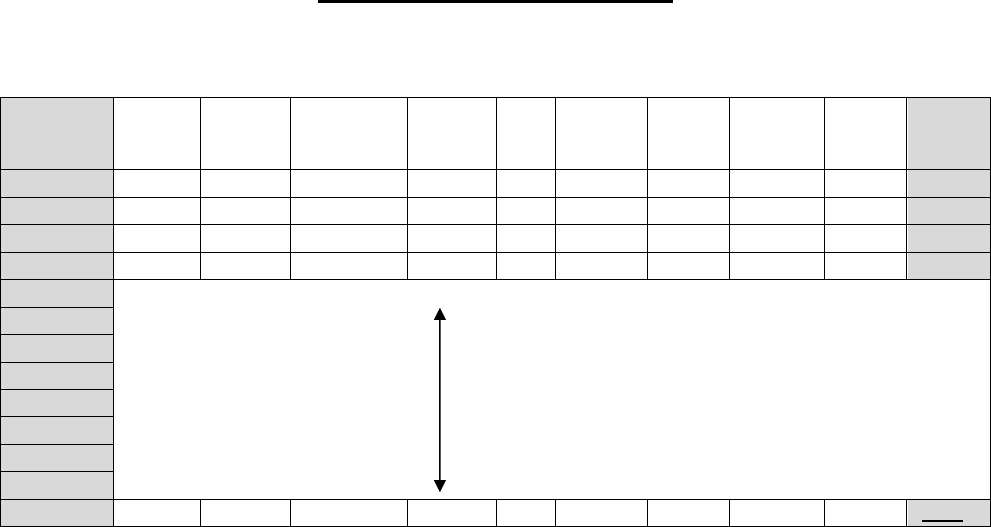
ESED Courses Bulletin 2022-2023 June 2022
Page 7 of 58
6-Year Post - B.Sc. Dual Degree Programme with M.Sc. - Ph.D.
(M.Sc. in 2-years)
ENVIRONMENTAL SCIENCE AND ENGINEERING DEPARTMENT
For the 2021 and 2022 Entrants
COURSE STRUCTURE
β
credits not counted
Semester
ESED
Core
ESED
Elective
Institute
Elective
Course
Outside
ESED
Lab.
Seminar
R&D
project
Commu-
nication
(PP/NP)
Project
Total
Credits
I
30
-
-
-
6
4
-
-
-
40
II
18
6
6
-
3
0
-
β (+6)
6
39+β
III
24
6
-
-
3
-
-
β (+6)
18
51
IV
6
12
-
-
-
-
-
-
24
42
V
Ph.D. Research
VI
VII
VIII
IX
X
XI
XII
Total
78
24
6
0
12
4
0
β (+6)
48
172+β
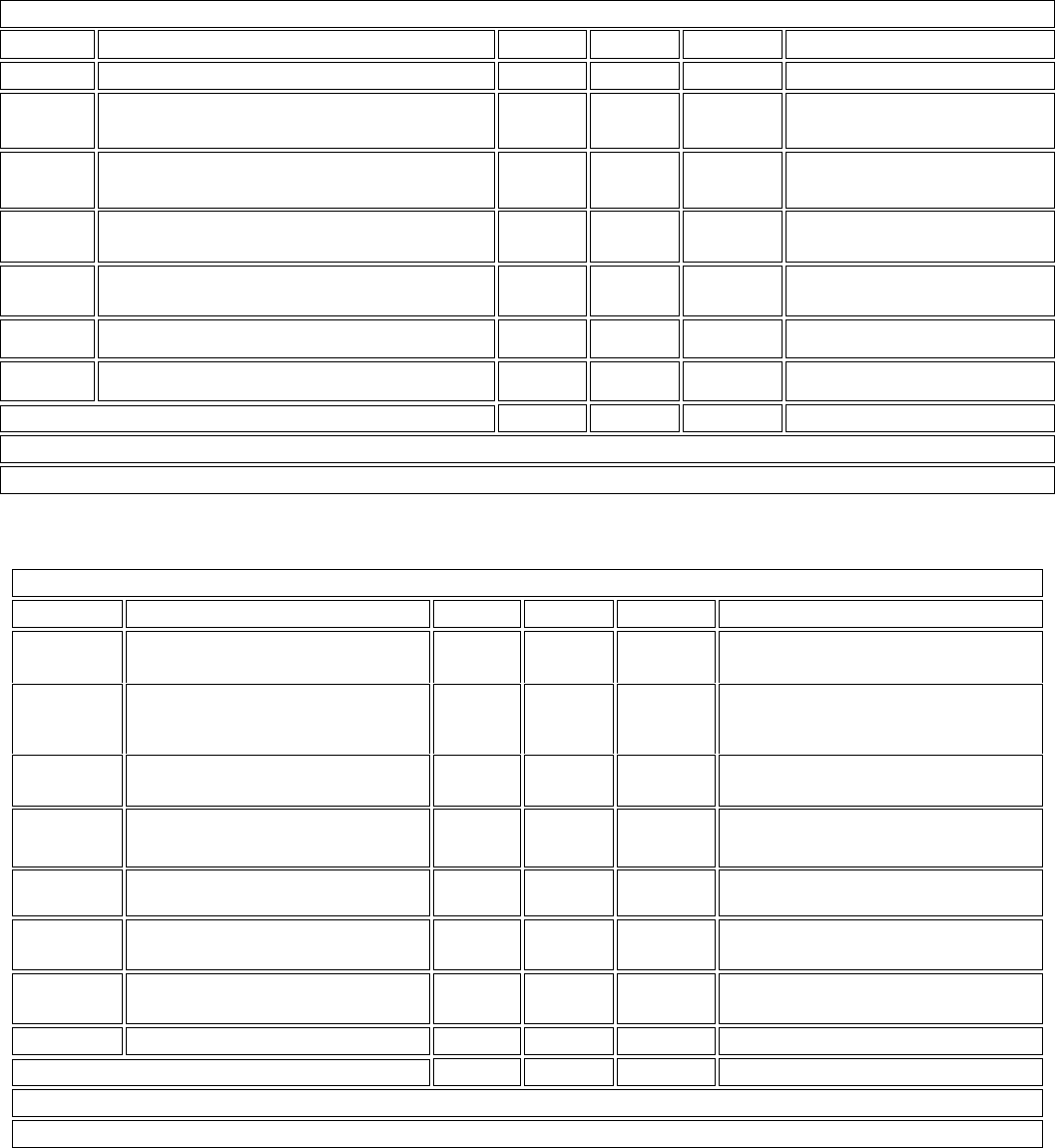
ESED Courses Bulletin 2022-2023 June 2022
Page 8 of 58
COURSE CURRICULA (M.Sc. - Ph.D.): For the 2021 and 2022 Entrants
FIRST YEAR : First Semester
Code
Name of the Course
Lectures
Tutorials
Practicals
Credits
ES 631
Environmental Chemistry
3
0
0
6
ES 657
Water Resources and Environmental
Hydraulics
3
0
0
6
ES 659
Mathematics and Statistics for
Environmental Engineering
3
0
0
6
ES 633
Environmental Microbiology and Ecology
3
0
0
6
ES 635
Air Pollution Science and Engineering
3
0
0
6
ES 651
Environmental Monitoring Laboratory
0
0
6
6
ES 296
Seminar
0
0
0
4
15
0
6
40
Formal Contact Hours : 21
Total Credits : 40
FIRST YEAR: Second Semester
Code
Name of the Course
Lectures
Tutorials
Practicals
Credits
ES 672
Air Pollution Control
Technologies
3
0
0
6
ES 899
(ES 792/HS
791)
Communication Skills
1
2
0
6 (PP/NP)*
ES 208
Mass Transfer Process in
Environmental Systems
3
0
6
6
Institute Elective
3
0
0
6
ESED ELECTIVE-I
(may be taken from Group I & II)
3
0
0
6
ES 668
Environmental Computational
Laboratory
0
0
3
3
ES 664
Environmental Systems
Modelling
3
0
0
6
ES 493
M.Sc.-Ph.D. Project I
0
0
0
6
16
2
9
39+6*
Formal Contact Hours : 27
Total Credits : 39+6*
* (can be taken either in the 2
nd
or 3
rd
semester)
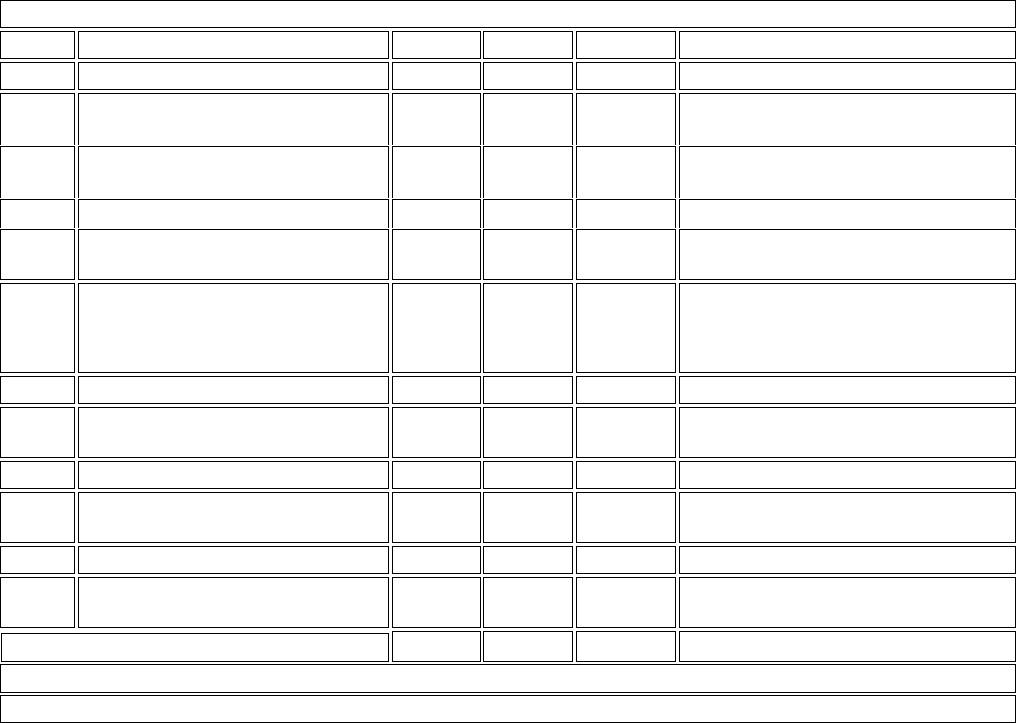
ESED Courses Bulletin 2022-2023 June 2022
Page 9 of 58
SECOND YEAR : First Semester
Code
Name of the Course
Lectures
Tutorials
Practicals
Credits
ES 451
Environmental Field Studies
0
0
3
3
ES 637
Municipal Water and Wastewater
Systems
3
0
0
6
ES 639
Physico-Chemical Treatment
Technologies
3
0
0
6
ES 645
Environmental Law and Policy
3
0
0
6
ES 647
Municipal Solid and Biomedical
Waste Management
3
0
0
6
ES 899
(ES
792/HS
791)
Communication Skills
1
2
0
β (+6) (PP/NP)*
ESED ELECTIVE II
3
0
0
6
ES 653
Environmental Impact
Assessment
ES 655
Environmental Management
ES 649
Atmospheric Processes and
Climate Change
ES 601
Environmental Health and Safety
ES
494
M.Sc.-Ph.D. Project II
0
0
0
18
15
0
3
51
Formal Contact Hours : 18
Total Credits : 51
* (can be taken either in the 2
nd
or 3
rd
semester)
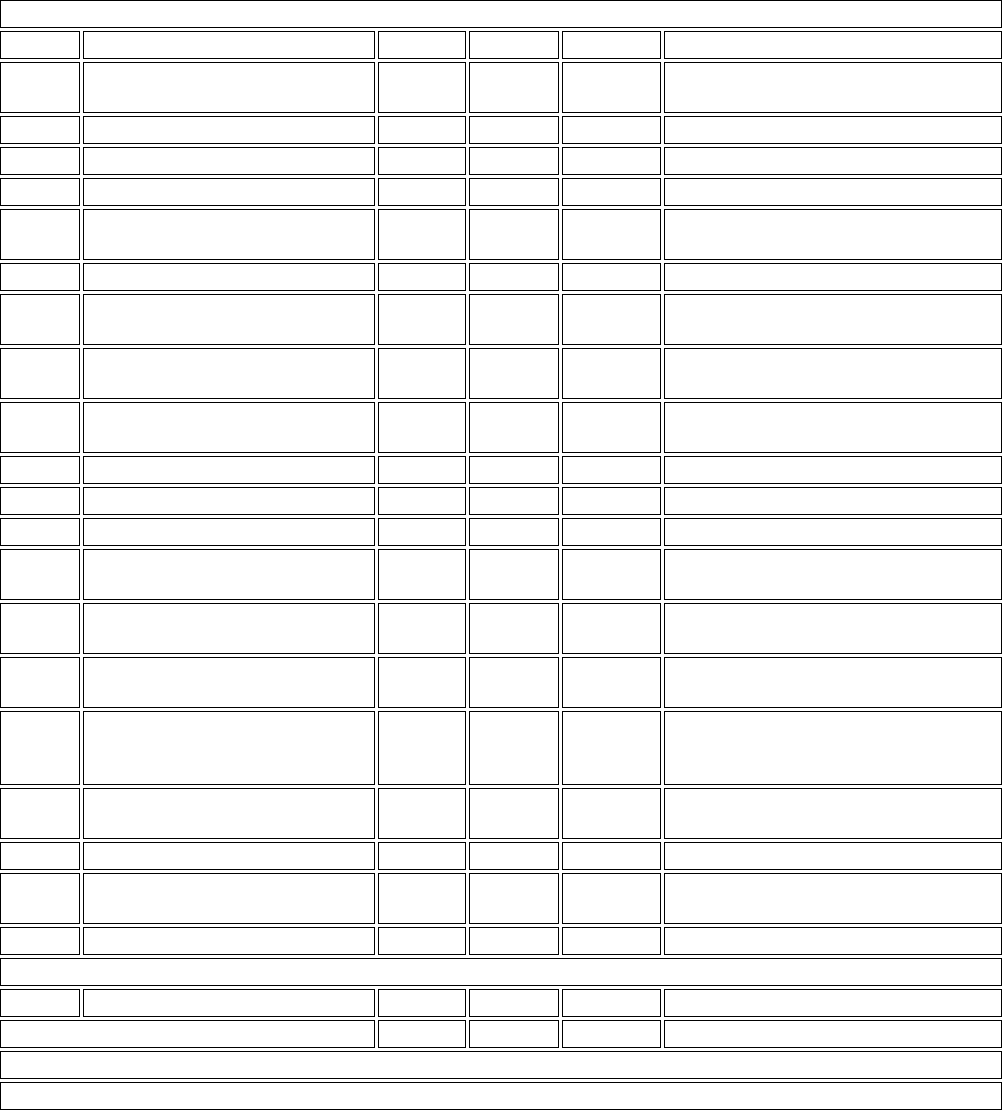
ESED Courses Bulletin 2022-2023 June 2022
Page 10 of 58
SECOND YEAR : Second Semester
Code
Name of the Course
Lectures
Tutorials
Practicals
Credits
ES 666
Biological Treatment
Technologies
3
0
0
6
ESED ELECTIVE III
3
0
0
6
Group-I
EN 648
Combustion Engineering
ES 682
Numerical Methods for
Environmental Systems
2
0
2
ES 624
Hazardous Waste Management
3
0
0
ES 642
Industrial Wastewater
Management and Reuse
3
0
0
ES 658
Environmental Change and
Sustainable Development
3
0
0
ES 644
Industrial Pollution Prevention
and Clean Technologies
3
0
0
CM 801
Introduction to Risk Analysis
3
0
0
ESED ELECTIVE IV
3
0
0
6
Group-II
ES 674
Aerosol Science and
Engineering
3
0
0
ES 680
GIS for Environmental Planning
and Management
1
0
4
ES 616
Energy Conversion and
Environment
3
0
0
ES 654
Groundwater Flow and
Contaminant Transport through
Porous Media
3
0
0
ES 656
Bioremediation Principles and
Applications
3
0
0
ES 676
Membrane Processes
3
0
0
ES 684
Design for Water and
Wastewater Systems
3
0
0
ES 678
Soil Science
3
0
0
ELECTIVE III and ELECTIVE IV are ESED electives to be chosen from group- I and II, respectively
ES 495
M.Sc.-Ph.D. Project III
0
0
0
24
9
0
0
42
Formal Contact Hours: 9
Total Credits: 42
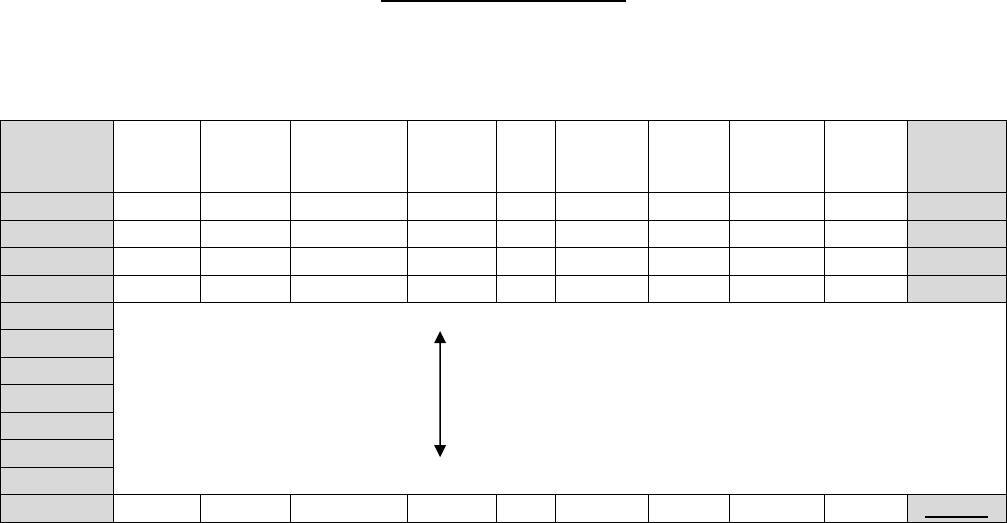
ESED Courses Bulletin 2022-2023 June 2022
Page 11 of 58
6-Year Post - B.Sc. Dual Degree Programme with M.Sc. - Ph.D.
ENVIRONMENTAL SCIENCE AND ENGINEERING DEPARTMENT
For the 2020 Entrants
COURSE STRUCTURE
β
credits not counted
Semester
ESED
Core
ESED
Elective
Institute
Elective
Course
Outside
ESED
Lab.
Seminar
R&D
project
Commu-
nication
(PP/NP)
Project
Total
Credits
I
36
-
-
-
-
4
-
-
-
40
II
12
6
6
-
9
-
-
β (+6)
6
39+β
III
24
6
-
-
3
-
-
-
18
51
IV
6
12
-
-
-
-
-
-
24
42
VI
Ph.D. Research
VII
VIII
IX
X
XI
XII
Total
78
24
6
0
12
4
0
β (+6)
48
172+ β
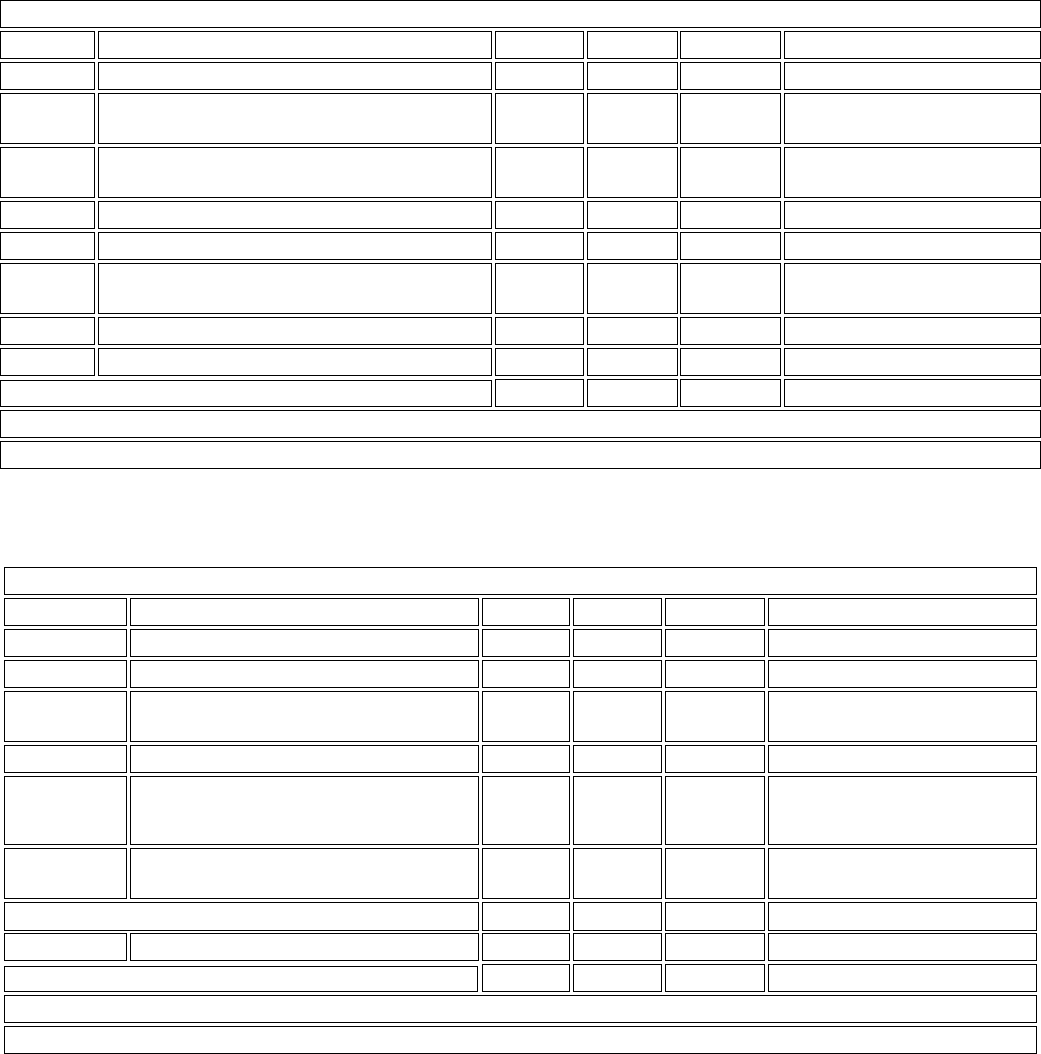
ESED Courses Bulletin 2022-2023 June 2022
Page 12 of 58
COURSE CURRICULA (M.Sc. - Ph.D.): For the 2020 Entrants
FIRST YEAR : First Semester
Code
Name of the Course
Lectures
Tutorials
Practicals
Credits
ES 631
Environmental Chemistry
3
0
0
6
ES 657
Water Resources and Environmental
Hydraulics
3
0
0
6
ES 659
Mathematics and Statistics for
Environmental Engineering
3
0
0
6
ES 633
Environmental Microbiology and Ecology
3
0
0
6
ES 635
Air Pollution Science and Engineering
3
0
0
6
ES 208
Mass Transfer Process in Environmental
Systems
3
0
0
6
ES 296
Seminar
0
0
0
4
18
0
0
40
Formal Contact Hours : 18
Total Credits : 40
FIRST YEAR: Second Semester
Code
Name of the Course
Lectures
Tutorials
Practicals
Credits
ES 672
Air Pollution Control Technologies
3
0
0
6
ES 664
Environmental Systems Modelling
3
0
0
6
ES 668
Environmental Computational
Laboratory
0
0
3
3
ES 651
Environmental Monitoring Laboratory
0
0
6
6
ES 899
(HS/ES
791/792)
Communication Skills
1
2
0
β (+6) (PP/NP)
ESED
ELECTIVE-I
May be taken from Group I & II
3
0
0
6
Institute Elective
3
0
0
6
ES 493
MSc-PhD Project I
0
0
0
6
13
2
9
39+β
Formal Contact Hours : 13
Total Credits : 39+β
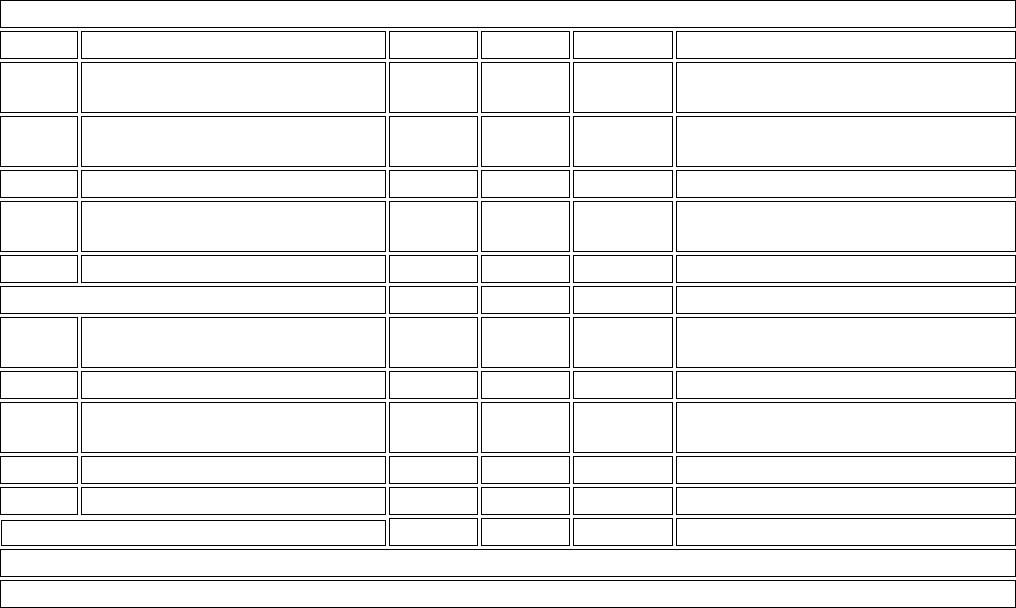
ESED Courses Bulletin 2022-2023 June 2022
Page 13 of 58
SECOND YEAR : First Semester
Code
Name of the Course
Lectures
Tutorials
Practicals
Credits
ES 637
Municipal Water and Wastewater
Systems
3
0
0
6
ES 639
Physico-Chemical Treatment
Technologies
3
0
0
6
ES 645
Environmental Law and Policy
3
0
0
6
ES 647
Municipal Solid and Biomedical
Waste Management
3
0
0
6
ES 451
Environmental Field Studies
0
0
3
3
ESED Elective II
3
0
0
6
ES 653
Environmental Impact
Assessment
3
0
0
ES 655
Environmental Management
3
0
0
ES 649
Atmospheric Processes and
Climate Change
3
0
0
ES 601
Health Safety and Environment
3
0
0
ES 494
M.Sc.-Ph.D. Project II
0
0
0
18
15
0
3
36
Formal Contact Hours : 18
Total Credits : 51
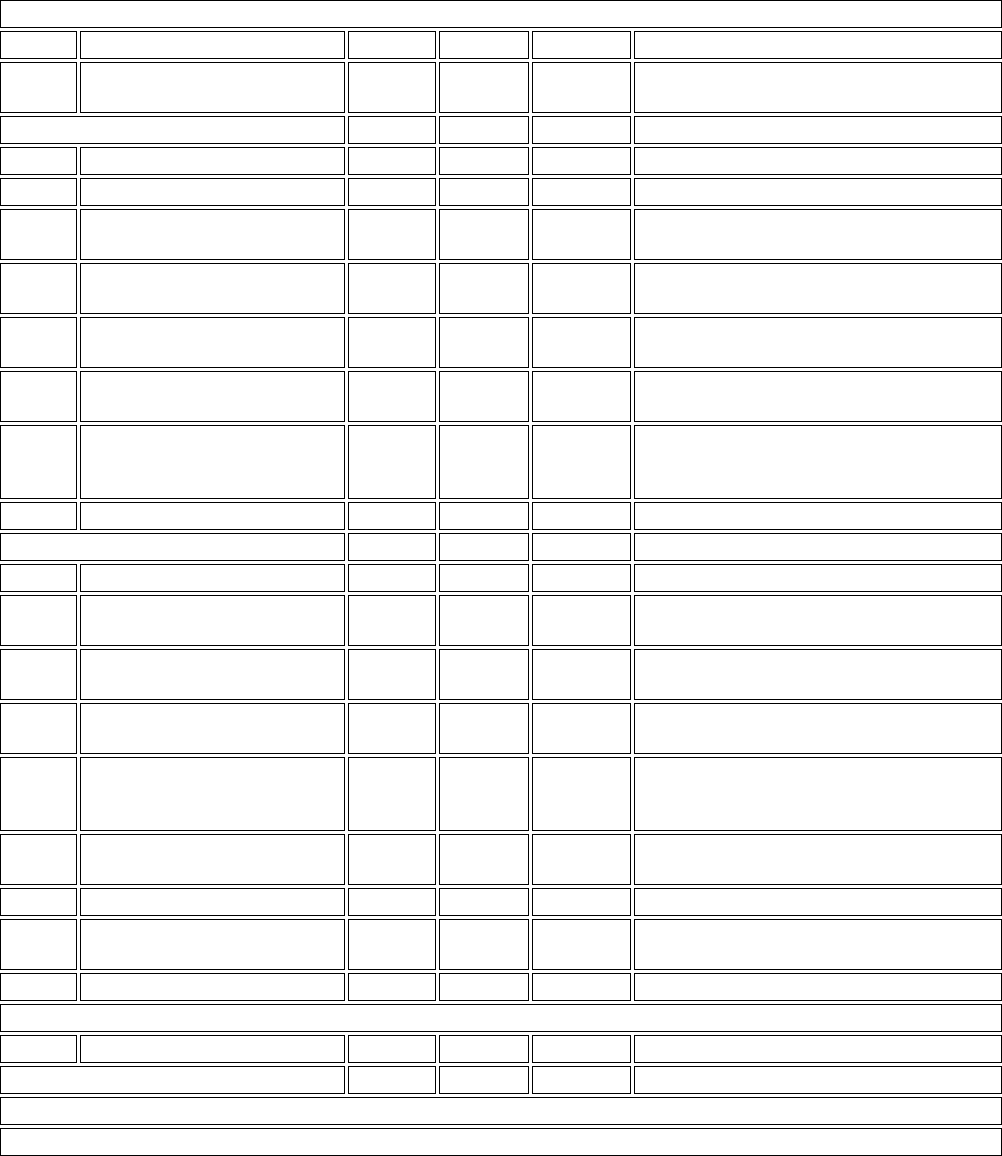
ESED Courses Bulletin 2022-2023 June 2022
Page 14 of 58
SECOND YEAR : Second Semester
Code
Name of the Course
Lectures
Tutorials
Practicals
Credits
ES 666
Biological Treatment
Technologies
3
0
0
6
ESED ELECTIVE III
3
0
0
6
Group-I
EN 648
Combustion Engineering
3
0
0
ES 682
Numerical Methods for
Environmental Systems
2
0
2
ES 624
Hazardous Waste
Management
3
0
0
ES 642
Industrial Wastewater
Management and Reuse
3
0
0
ES 658
Environmental Change and
Sustainable Development
3
0
0
ES 644
Industrial Pollution
Prevention and Clean
Technologies
3
0
0
CM 801
Introduction to Risk Analysis
3
0
0
ESED ELECTIVE IV
3
0
0
6
Group-II
ES 674
Aerosol Science and
Engineering
3
0
0
ES 680
GIS for Environmental
Planning and Management
1
0
4
ES 616
Energy Conversion and
Environment
3
0
0
ES 654
Groundwater Flow and
Contaminant Transport
through Porous Media
3
0
0
ES 656
Bioremediation Principles
and Applications
3
0
0
ES 676
Membrane Processes
3
0
0
ES 684
Design for Water and
Wastewater Systems
3
0
0
ES 678
Soil Science
3
0
0
One ESED Elective is to be taken from either of the two groups
ES 495
M.Sc.-Ph.D. Project III
0
0
0
24
9
0
0
42
Formal Contact Hours: 9
Total Credits: 42

ESED Courses Bulletin 2022-2023 June 2022
Page 15 of 58
Course Details
ES 200 ENVIRONMENTAL STUDIES 3 0 0 3
(Institute Common UG Course)
Multidisciplinary nature of environmental studies; Natural Resources: Forest, Water,
Mineral, Energy, Land; Sustainable development; Ecosystems; Biodiversity and its
conservation.
Environmental Pollution: Air, Water, Soil, Solid and Hazardous Waste Management;
Environment and human health; Environmental Legislation.
Global Issues: Climate change, global warming, acid rain, ozone layer depletion.
Social Issues and the Environment: Environmental ethics and economics;
Resettlement and rehabilitation of people.
Text /References
Cunningham W.P. and Cunningham M.A. (2002), Principles of Environmental Science,
Tata McGraw-Hill Publishing Company, New Delhi.
Dasgupta, P. and Maler, G. (eds.), (1997), The Environment and Emerging
Development Issues, Vol. I, Oxford University Press, New Delhi.
Jackson, A.R.W. and Jackson, J.M. (1996), Environmental Sciences: The Environment
and Human Impact, Longman Publishers.
Nathanson, J.A., (2002), Basic Environmental Technology, Prentice Hall of India, New
Delhi.
Redclift, M. and Woodgate, G. (eds.), (1997), International Handbook of Environmental
Sociology, Edward Edgar.
Srivastava, K.P. (2002), An Introduction to Environmental Study, Kalyani Publishers,
Ludhiana.
Maximum Registered Students
Prerequisites
None
Should be distributed equally between
two semesters. Maximum 350 students
each semester
ESED Courses Bulletin 2022-2023 June 2022
Page 16 of 58
ES 201 APPLIED ENVIRONMENTAL MICROBIOLOGY AND ECOLOGY 3 0 0 6
Ecology and Ecosystems: Structure and function of ecosystems; Biogeochemical
cycles and role of microorganisms
Structure of prokaryotic and eukaryotic cells; Types of microorganisms; metabolic
classification of microorganisms; Cell chemistry; Cell biology
Biochemical thermodynamics and bioenergetics; Enzyme kinetics and regulation;
Microbial metabolism and biochemistry; Microbial nutrition, growth and growth kinetics;
Role of antibiotics; Bacterial genetics
Microbial ecology and diversity; Microbial diversity and niches in wastewater treatment
systems and groundwater systems
Microbiological aspects of drinking water and drinking water distribution systems;
Indicator organisms; Disinfection processes
Microbial degradation of xenobiotic organic compounds; and Bioremediation.
Texts/References
Madigan M.T., Bender K. S., Buckley, D.H., Sattley, W.M., Stahl, D.A. Brock’s Biology
of Microorganisms, 15th Ed, ASM Press, NY, 2018.
Maier, R.M., Pepper, I.L., Gerba C.P., Environmental Microbiology, 2nd Ed. Academic
Press, 2009
Bitton, G., Wastewater Microbiology, 3rd Ed., Wiley-Liss Inc., New York, 2005
Jackson, A.R.W. and Jackson, J.M., Environmental Science: The Natural Environment
and Human Impact, 2nd Ed., Pearson Education, 2000.
Maximum Registered Students
Prerequisites
This course is not permitted as elective for students outside ESED.
ESED Courses Bulletin 2022-2023 June 2022
Page 17 of 58
ES 208 MASS TRANSFER PROCESS IN ENVIRONMENTAL SYSTEMS 3 0 0 6
(M.Sc.-Ph.D.)
Environmental systems and processes: natural and engineered systems of
environmental significance, character and scale, quantification, reactions, reactors,
material balance relationship, initial and boundary conditions, mass balance based
process models.
Macro transport and micro transport processes: advective and dispersive transport
mass & momentum balance, Reynolds number, Prandtl hypothesis, dispersion
coefficient and flux expressions, diffusive mass transfer, Ficks Law, diffusivity
estimation, interphones mass transfer, boundary layers, mass transfer coefficients, film
Model, penetration and surface renewal model, development of mass transfer
correlations.
Energetics in homogeneous and heterogenous system: reaction concepts, equilibrium
vs ateady-state, thermodynamic relationships and functions, reaction feasibility,
fugacity and chemical potential , Henry’s Law, Raoult’s Law, phase exchange
equilibria, absorption and adsorption processes, isotherm models, species distribution
among phases in environmental eystems.
Rate concepts in homogenous system: mass law relationship, reaction order, rate data
analysis and choice of rate expression, activation energy, complex reaction kinetics,
Reactor engineering in steady state homogenous systems: ideal reactions, CMBR,
CMFR, PFR, PFDR, nonideal reactors, residence time distribution analysis.
Text/References
Weber, W.J. Jr., Process Dynamics in Environmental Systems, John Wiley & Sons Inc,
1996.
Fogler, H.S., Elements of Chemical Reaction Engg., 2nd Ed., Prentice-Hall India, 2001.
Maximum Registered Students
Prerequisites
None
(This course will not be permitted as elective for students outside ESED)
ESED Courses Bulletin 2022-2023 June 2022
Page 18 of 58
ES 252 ENVIRONMENTAL CHEMISTRY LAB 0 0 3 3
Water quality monitoring, Cation / anion analysis; BOD; COD; Residual chlorine
analysis; Metal analysis; Instrumental methods of pollutant analysis; Characterisation
of sludge sample.
Text/References
Standard Methods for the Examination of Water and Wastewater, 19th Edition,
APHA/AWWA/WPCF Publishing, Washington, D.C., 1995.
Maximum Registered Students
Prerequisites
None
Only for Dual-degree students of ESED
ESED Courses Bulletin 2022-2023 June 2022
Page 19 of 58
ES 253 ENVIRONMENTAL MICROBIOLOGY LABORATORY 0 0.5 3 4
Microscopy; Staining and detection of microbes; Methods of enumerating microbes;
Multiple tube fermentation technique; Membrane filter technique.
Text/References
Pepper, I. L., Gerba, C. P., Brendecke, J. W. (1995), Environmental Microbiology- A
Laboratory Manual, Academic Press Inc., San Diego, USA.
Csuros, M. and Csuros, C. (1999), Microbiological Examination of Water and
Wastewater, Lewis Publishers, CRC Press, Boca Raton, Florida, USA
ESED Lab Manuals.
Maximum Registered Students
Prerequisites
None
Only for dual-degree students of ESED
ESED Courses Bulletin 2022-2023 June 2022
Page 20 of 58
ES 301 INTRODUCTION TO FLUID MECHANICS 3 0 0 6
Definition and properties of fluids; fluid pressure and its measurement; hydrostatic
force on plane, inclined and curved submerged surfaces; buoyancy and floatation;
kinematics of fluid flow:; fluid dynamics: flow through orifices; weir and notches; flow
through pipes; flow of compressible fluids; continuity, momentum and energy
equations; flow through open channels; hydraulic machines.
Text/References
Streeter, V.L. and Wylie, E. B., Fluid Mechanics, McGraw Hill Book Co.,1983.
Subramanya, K., Open Channel Hydraulics, Tata McGraw Hill Co., 1998.
Giles, R. V., Schaum's outline of theory and problems of fluid mechanics and
hydraulics, Schaum publication, New York, 1994.
Maximum Registered Students
Prerequisites
None
Only for dual-degree students of ESED
ESED Courses Bulletin 2022-2023 June 2022
Page 21 of 58
ES 302 ENVIRONMENTAL BIOTECHNOLOGY 3 0 0 6
Nature of biological processes and their application to industries such as fermentation
technology; enzyme technology and their environmental applications:
Bioprocesses for cleaner production, sustainable development and economic benefits:
biobleaching in pulp and paper industries; bioleaching (biomining) of ores for recovery
of precious metals; cleaner biotechnologies in oil agro industries
Biological fuel generation: biohydrogen, biomethanation and alcohol production
Biotechnology for enhancing agricultural productivity: bioinsecticides- structure,
function and mode of action
Cleaner production activities in Asia: case studies on demonstration projects
Pollution control biotechnology: application of microorganisms, enzymes and plants
(phytoremediation) for treatment of domestic and industrial wastewater and soil;
immobilized microorganisms in waste treatment; use of immobilized cells and enzymes
as biosensors;
Genetic engineering: Introduction to recombinant DNA technology, safety, social,
moral and ethical considerations; applications of recombinant technology for enhanced
biodegradation and engineer organism with novel catabolic capabilities; detection of
pathogens and parasites in wastewater and environmental samples using nucleic acid
probes and polymerase chain reaction (PCR).
Public perception of biotechnology, protection of biotechnological inventions, looking
to the future of biotechnology.
Texts/References
Bhattacharya, B. C. and Banerjee R., (2007) Environmental Biotechnology, Oxford
University Press, India
Smith, J. E. (2004) Biotechnology, 3rd edition, Cambridge University Press, UK
Bitton, G. (1994) Wastewater microbiology, Wiley-Liss Inc., New York, USA
Maximum Registered Students
Prerequisites
None
(Only for the dual-degree students of ESED)
ESED Courses Bulletin 2022-2023 June 2022
Page 22 of 58
ES 317 FUNDAMENTALS OF AIR POLLUTION SCIENCE AND 3 0 0 6
ENGINEERING
Composition and structure of atmosphere; Air pollutants: Gaseous/Particulate; Health
effects; Air quality standards and regulations; Sources of air pollutants; Particle size
distributions; Monitoring of air pollutants; Principles of industrial air pollution control
methods for gaseous and particulate; Modelling (Gaussian Dispersion); Air quality
management; Climate effect of air pollutants; Atmospheric chemistry of ozone; Indoor
air pollution.
Texts/References
de Nevers, N., Air Pollution Control Engineering, McGraw Hill, New Delhi, 1995.
Hinds, W.C., Aerosol Technology: Principles, Behaviour and Measurements of
Airborne Particles, Wiley: NY, 1982.
Masters, G.M., and Ela, W.P., Introduction to Environmental Engineering, 3rd Edition,
Pearson New International Edition, Pearson Education Inc., Noida, India, 2013.
Nathanson,J.A. and Schneider R.A., , Basic Environmental Technology, 6th Edition,
Pearson Education Inc., Noida, India, 2017
Seinfeld, J. H. and Pandis, S N., Atmospheric Chemistry and Physics: from Air
Pollution to Climate Change, John Wiley, New York, 1998.
Maximum Registered Students
Prerequisites
This course is not permitted as elective for students outside ESED. Only dual-degree
students of ESED are allowed to register.
ESED Courses Bulletin 2022-2023 June 2022
Page 23 of 58
ES 351 AIR POLLUTION MONITORING LABORATORY 0 0 3 3
Air pollution measurements: Measurement design and methods; Principles and
instruments for particulate and gaseous pollutant measurements; Meteorological
measurements.
Text/References
Cohen, B.S., and Hering, S.V. (Eds), Air Sampling Instruments for Evaluation of
Atmospheric Contaminants, 8th Ed., ACGIH, 1995.
Hinds, W.C., Aerosol Technology : Properties, Behaviour and Measurements of Air
borne Particles, Wiley-Interscience, New York.
Kenneth, E., Noll and Terry L. Miller, Air Monitoring Survey Design, Ann Arbor Science,
1977.
Maximum Registered Students
Prerequisites
None
(Only for the dual-degree students of ESED)
ESED Courses Bulletin 2022-2023 June 2022
Page 24 of 58
ES 451 ENVIRONMENTAL FIELD STUDIES 0 0 3 3
Field experiments to assess the status of various components of environment in a
selected area, Sampling and analysis of environmental parameters, Assessment of
sources of pollution.
Visit to industrial units or treatment schemes to understand and undertake assessment
to relate basic principles, Preparation of field study report.
Air Quality: Sampling of particulates, Size distribution of particles, Sampling of gaseous
pollutants SO
2
, NO
x
, CO, NH
3
and CO
2
; Measurement of air pollution meteorological
parameters wind, turbulence, T, RH , solar radiation and rain.
Water Quality: Measurement of parameters to determine the status of water bodies
and drinking water quality; pH, turbidity, total hardness, DO, BOD, COD, NH
4
+
-N.
phenol, oil and grease, standard plate count measurements.
Soil/sediment Quality: Total C content, organic matter, inorganic phosphate.
Ecology: Identification of organisms into genus and species; Measurement and
calculation of biodiversity indices based on plants and animals; Observations of
interactions (interdependence) among organisms; Net and gross primary productivity,
community respiration rate; Field Trips.
Socio-economic Survey: Population distribution, health status, perception of
environment.
Text/References
Artiola, Janick F. (Ed.), Environmental Monitoring and Characterization, Elsevier
Academic Press, 2004.
Khopkar, S.M., Environmental Pollution, Monitoring and Control, New Age Intl., New
Delhi, 2004.
Standard Methods for the Examination of Water and Wastewater, 20
th
ed.,
Washington, D.C., American Public Health Association, 1998.
Lodge, J.P., Jr., (Ed.) Methods of Air Sampling and Analysis, 3
rd
ed., Lewis Publishers,
1988.
Smith, R. L. (1996), Study guide to accompany ecology and field biology, 5
th
edition,
Menlo Park, California, USA, Benjamin Cummings
Krebs C.J. (1999), Ecological methodology, 2
nd
edition, Menlo Park, California, USA,
Benjamin Cummings
Maximum Registered Students
Prerequisites
None
ESED Courses Bulletin 2022-2023 June 2022
Page 25 of 58
ES 601 HEALTH SAFETY AND ENVIRONMENT 3 0 0 6
Regulations for Environment, Health and Safety : Factories Act and Rules,
Environmental Pollution Act, Oil Industry Safety Directorate (OISD), Indian Electricity
Acts and Rules, Mines Acts and Rules , Workmen Compensation Act, OSHA
Standards, IS & BS Standards, API standards
Occupational Health and Hygiene: Physical Hazards: Noise and vibration,
Instrumentation, Surveying procedure, Health effects, Control measures (stress,
exposure and radiation effects).
Chemical Hazards: Recognition of hazards, TLV for air, gas and chemical
contaminants. Demonstration of equipment for the assessment of physical and
chemical hazards.
Occupational Health: Concept and spectrum of health, industrial toxicology, toxicity
Safety Management
Safety performance: As per Indian and International standards
Hazard analysis: Cost effectiveness in hazard elimination – logical analysis – HAZOP
Probabilistic reliability considerations, estimating probability in time, mathematical
calculation of probability, reliability determination.
Safety management techniques: Safety inspection – safety action, safety survey
disaster control.
Environmental Pollution Control
Air pollution: Classification and properties of air pollutants, sources, control, dispersion
of air pollutants.
Water pollution: Classification – effect on receiving bodies, chemical, physical and
biological treatment method.
Solid Waste Management: Method of collection, disposal, land filling.
Text/References
IS codes: IS 5903, IS 807, IS 2760, IS 14469, IS 13367-1, IS 5324, IS 7167, IS 7155,
IS1800, IS 3521.
Handbook of Occupational Health and Safety, NIC, Chicago, 1982.
Encyclopedia of Occupational Health and Safety, Vol. I and II. International Labour
Organisation, Geneva, 1985.
McCornick, E.J. and Sanders, M.S., Human Factors in Engineering and Design, Tata
McGraw Hill, 1982.
Accident Preventional Manual, NSC Chicago, 1982.
Henrich, H.W., Industrial Accident Prevention, McGraw Hill, 1980.
Less, F.P., Loss Prevention in Process Industries, Butterworth, New Delhi, 1986.
Maximum Registered Students
Prerequisites
None
(Only for students of ESED)

ESED Courses Bulletin 2022-2023 June 2022
Page 26 of 58
ES 600 (Institute Elective) ENVIRONMENTAL SCIENCE AND ENGINEERING
3 0 0 6
Introduction to Environmental Science and Engineering - Nature and scope of
environmental problems, Ecosystem effects through bio-geochemical cycles,
Environmental awareness and sustainable development; Water Pollution
Fundamentals and Control Strategies; Water quality - physical and chemical
characteristics, Drinking water standards; Effluent water quality requirements; Water
and wastewater treatment processes - treatment train, physical, chemical and
biological unit operations; Air pollution fundamentals; Sources and classifications;
particulate and gaseous emissions; health effects; Particulate pollution control;
Gaseous pollution control; Hazardous Waste and Pollution Prevention - Industrial
sources and regulations, Toxicity measurement and human health risk assessment,
Treatment and disposal methods, Pollution prevention approach.
Text/References
Stern, A.C., Air Pollution, Elsevier.
Glynn Henry, J. and Heinke, G.W., Environmental Science and Engineering, Prentice
Hall.
Jackson, A.R.W. and Jackson, J.M., Environmental Sciences: The Environment and
Human Impact, Longman Publishers.
de Nevers, N., Air Pollution Control Engineering, McGraw-Hill, New York.
Masters, G.M., Introduction to Environmental Engineering and Science, Prentice Hall,
2008, New Delhi.
Nathanson, J. A., Basic Environmental Technology – Water supply, Waste
Management and Pollution Control. Prentice Hall, 2002 New Delhi.
Cunningham W.P. and Cunningham M.A. (2002), Principles of Environmental Science,
Tata McGraw-Hill Publishing Company, New Delhi.
Metcalf and Eddy, Wastewater Engineering, Treatment, Disposal and Reuse, Tata
McGraw Hill, 1995.
Davis, M. L. and Cornwell D. A. (1998), Introduction to Environmental Engineering,
2nd Ed., McGraw Hill, Singapore.
Supplementary Reading Materials (Selected Book Chapters and Papers)
Maximum Registered Students
Prerequisites
None
60
ESED Courses Bulletin 2022-2023 June 2022
Page 27 of 58
ES 616 ENERGY CONVERSION AND ENVIRONMENT 3 0 0 6
Interlinkages of energy and environment.
Principles of energy conversion methods: thermal, nuclear, hydro, solar.
An introduction to fuels, combustion fundamentals, thermodynamics, kinetics and
properties of combustion products; combustion principles for gases, liquids and solids.
Formation of pollutants, measurements and control.
Automobile engines, operation and design, emissions. Power production and
emissions from waste incineration.
Energy policies, economics related to energy along
with cost factor, the renewable energy sources and conversion processes
and sustainable energy.
Energy externalities, Energy and climate change global issues.
Alternative energy sources, economics, sustainability.
Text/References
International Energy Markets: Understanding Pricing, Policies and
Profits by Carol A.Dahl, PennWell Corporation (2004) ISBN:
978-0-87814-799-1
Energy: Technology and directions for the future by John R. Franchi,
Elsevier Academic Press (2004). ISBN: 0-12-248-291-3
Principles of Sustainable Energy by Frank Keith and Jan F Kreider, CRC
press (Taylor and Francis group) (2011), ISBN: 978-1-4398-1407-9
Energy Economics: A Modern Introduction by Ferdinand E Banks.
Kluwer Academic Publishers. 2nd ed. (2003), ISBN: 0-7923-7700-1
Flagan, R.C., Seinfeld, J.H., Fundamentals of Air Pollution Engineering, Prentice Hall,
New Jersey, 1988.
Kanury, A.M., Introduction to Combustion Phenomena, Gordon and Breach Science
Publishers, New York, 1992.
Maximum Registered Students
Prerequisites
None
ESED Courses Bulletin 2022-2023 June 2022
Page 28 of 58
ES 624 HAZARDOUS WASTE MANAGEMENT 3 0 0 6
Hazardous Waste Fundamentals: Definition; Landmark episodes; Classification;
Generation.
Regulatory process : Hazardous Waste (Management and Handling) Rules and
Amendments, Guidelines for HWM from MoEF, New Delhi, Regulatory framework in
the USA and EU, Basal Convention and other international statutes.
Process: Physicochemical properties; Energy and mass balances; Fate and transport
of contaminants; Toxicology
Current Management Practices: Environmental audit; Pollution prevention; Facility
development and operations.
Treatment and Disposal Methods: Physicochemical processes; Biological processes;
Stabilization and solidification; Thermal methods; Land disposal.
Remediation of Contaminated Sites: Quantitative risk assessment; Site and
subsurface characterization; Containment, Remedial alternatives.
Text/References
LaGrega, M.D., Buckingham, P.L., and Evans, J.C., Hazardous Waste Management,
McGraw-Hill International Editions, New York. 1994.
Freeman, H.W., Standard Handbook of Hazardous Waste Treatment and Disposal,
McGraw Hill, New York, 1989.
Martin, E.J. and Johnson, J.H., Hazardous Waste Management Engineering, van
Nostrand-Reinhold, New York, 1987.
Wentz, C.A., Hazardous Waste Management, 2
nd
Edition, McGraw Hill, New York,
1995
Maximum Registered Students
Prerequisites
For all UG and DD students: ES 200 and only for students from Civil, Chemical,
Metallurgy and Energy Department.
ESED Courses Bulletin 2022-2023 June 2022
Page 29 of 58
ES 631 ENVIRONMENTAL CHEMISTRY 3 0 0 6
Aquatic Chemistry: Chemical equilibria and kinetics fundamentals; Acids and bases;
Titrations; Acidity; Alkalinity; Buffers and buffer intensity; Chemical equilibrium
calculations; pC-pH diagram.
Precipitation and dissolution; Water softening and water conditioning; Langelier index;
Solubility diagram; Coexistence of phases in equilibrium; Complexation of metal ions
and organic complexes in natural water.
Oxidation and reduction reactions stoichiometry; Redox couples; pE-pH diagrams;
Redox control in natural systems; Basic concepts of organic and colloid chemistry.
Soil Chemistry: Weathering reactions; Structure and surface reactions of clays and
oxides; Forces at soil-water interfaces.
Atmospheric Chemistry: Chemical equilibria and kinetics; Photo-dissociation and free
radical reactions; Chemistry of precipitation; Acid rain.
Text/References
Sawyer, C.N., McCarty, P.L., and Parkin, G.F., Chemistry for Environmental
Engineering, 5
th
Edition, McGraw-Hill, Inc., New York, 2003.
Manahan, S.E., Fundamentals of Environmental Chemistry, Lewis Publishers, Inc.,
Boca Raton, 1993.
Sposito, G., Surface Chemistry of Soils, Oxford University Press, New York, 1984.
Stumm, W., and Morgan, J.J., Aquatic Chemistry : An introduction Emphasizing
Chemical Equilibria in Natural Waters, 2
nd
Edition, Wiley Intersciences, New York,
1981.
Maximum Registered Students
Prerequisites
None
ESED Courses Bulletin 2022-2023 June 2022
Page 30 of 58
ES 633 ENVIRONMENTAL MICROBIOLOGY AND ECOLOGY 3 0 0 6
Structure of prokaryotic and eukaryotic cells; Types of microorganisms; Metabolic
classification of microorganisms.
Microbial metabolism; Respiration and energy generation; Microbial growth; Enzyme
kinetics and regulation; Bacterial genetics; Structure of DNA and RNA; Transcription
and translation; Gene expression and regulation; Gene transfer and recombinant DNA
technology.
Ecology; Ecosystem structure; Energy flow and material cycling in an ecosystem;
Biogeochemical cycling of carbon, nitrogen, phosphorous and sulphur; Biodiversity
and conservation of wild genetic resources.
Microbiological aspects of drinking water and water distribution systems.
Texts/References
Bitton, G., Wastewater Microbiology, Wiley-Liss Inc., New York, 1994.
Pelczar Jr., M.J., Chan, E.C.S. and Kreig, N.R., Microbiology, 5
th
Edition, McGraw- Hill
Publishing Co. Ltd., New Delhi, 1993.
Odum, E.P., Fundamentals of Ecology, W.B. Saunders Pub. Co., Philadelphia, 1971.
Maximum Registered Students
Prerequisites
This course is not permitted as elective for students outside ESED. ES 633 is offered
for M.Sc., MTech and PhD students.
ESED Courses Bulletin 2022-2023 June 2022
Page 31 of 58
ES 635 AIR POLLUTION SCIENCE AND ENGINEERING 3 0 0 6
Air Pollutants and their Effects: The air pollution system; Gases and particulate;
Atmospheric sources, sinks, transport; Effects of health and environment; Criterial
pollutants, ambient and source standards.
Aerosols: Characterisation of aerosols, size distributions, measurement methods;
Transport behaviour: diffusion, sedimentation, inertial, electrical and thermal; Aerosol
Dynamics: nucleation, condensation and coagulation, Radiation properties – visibility,
climate effects; principles of particulate control systems.
Gaseous Pollutants: Vapour-liquid and vapour-solid equilibria; Diffusion and Interfacial
mass-transfer; Control systems.
Air quality management: dispersion modeling, source apportionment methods.
Texts/References
Cheremisinoff, P., Encyclopaedia of Environmental Control Systems, Vol 2, Gulf
Publishing Company, Houston, 1989.
de Nevers, N., Air Pollution Control Engineering, McGraw Hill, New Delhi, 1995
Friedlander, S. K., Smoke Dust and Haze, Oxford University Press, New York, 2000.
Hinds, W.C., Aerosol Technology: Principles, Behaviour and Measurements of
Airborne Particles, Wiley: NY, 1982.
Seinfeld, J. H. and Pandis, S N., Atmospheric Chemistry and Physics: from Air
Pollution to Climate Change, John Wiley, New York, 1998.
Maximum Registered Students
Prerequisites
This course is not permitted as elective for students outside ESED.
ESED Courses Bulletin 2022-2023 June 2022
Page 32 of 58
ES 637 MUNICIPAL WATER AND WASTEWATER SYSTEMS 3 0 0 6
Introduction to urban and metropolitan regional planning; Water quality and effluent
standards; Issues related to water supply and disposal of wastewater; Water demand
forecasting and management.
Environmental hydraulics: Flow in pipes; Multiport diffuser outfalls; Flow in open
channels; Pumps-system-head curve and pump head curve; Hydraulic profile
computations of water and wastewater treatment plant.
Water treatment and distribution systems; Network design; Municipal wastewater
collection; Computer packages for the design of water distribution and wastewater
collection system.
Text and References
Manual on Sewerage and Sewage Treatment, 2
nd
Edition, Ministry of Urban
Development, New Delhi, 1993.
Manual on Water Supply and Treatment, 3
rd
Edition, Ministry of Urban Development,
New Delhi, 1991.
Walski, T.M., Gessler, J., and Sjostorm, J.W., Water Distribution Systems: Simulation
and Sizing, Lewis Publisher, Michigan, 1990.
Peavy, H. S., Rowe, D. R., and Tchobanoglous, G., Environmental Engineering,
McGraw Hill Book Company, Singapore, 1985.
Benefield, L.D., Judkins, J.F., and Parr, A.D., Treatment Plant Hydraulics for
Environmental Engineers, Prentice-Hall Inc, New Jersey, 1984.
Maximum Registered Students
Prerequisites
None
Remarks: This course should not be permitted as elective for students outside ESED
ESED Courses Bulletin 2022-2023 June 2022
Page 33 of 58
ES 639 PHYSICO-CHEMICAL TREATMENT TECHNOLOGIES 3 0 0 6
Overview of mass transfer and reactor concepts; Mass transport mechanisms; Ideal
reactors, non-idealities, Mass balance in various reactor configurations.
Particle separation processes; Coagulation and flocculation processes, Particle
surface charge, surface potential and stability of colloidal dispersions; Sedimentation
and flotation processes, Gravity thickeners, clarifiers and flotation systems; Filtration
and Ultrafiltration Processes, Modeling approaches for rapid sand filters.
Solute separation processes; Gas transfer processes, Diffused and surface Aeration
and Air stripping of volatile contaminants in packed tower; Adsorption and ion
exchange processes, sorption isotherm models and rates considerations, Sorption in
completely mixed and packed bed reactors; Precipitation processes; Reverse osmosis
and electrodialysis.
Species transformation processes; Chemical oxidation / reduction processes,
disinfection using chlorine and UV.
Texts/References
Weber, W. J. Jr., Environmental Systems and Processes: Principles, Modeling and
Design, John Wiley and Sons Inc., New York, 2001
Weber, W. J. Jr., and DiGiano, F.A., Process Dynamics in Environmental Systems,
John Wiley and Sons Inc., New York, 1996
Weber, W. J. Jr., Physicochemical Processes for Water Quality Control, John Wiley
and Sons Inc., New York, 1972
Metcalf & Eddy, Inc, Tchobanoglous G. and Burton, F.L., Wastewater Engineering:
Treatment, Disposal and Reuse, 4
th
ed., Tata McGraw Hill, New Delhi, 2003
Maximum Registered Students
Prerequisites
None
Remarks: This course should not be permitted as elective for students outside ESED
ESED Courses Bulletin 2022-2023 June 2022
Page 34 of 58
ES 642 INDUSTRIAL WASTEWATER MANAGEMENT AND REUSE 3 0 0 6
Tertiary treatment of industrial wastewater including removal of nitrate, sulphate,
phosphorous, pathogens, color, odor, TDS, COD and residual BOD; Sector specific
issues in management of industrial wastewater including petrochemical, textile, food
processing, pharmaceutical, fertilizer, pesticides etc.; Policy and legislation including
challenges posed by various sectors of industries and legislation framework and
regulation in India; Case studies.
Text/References
Asolekar, S.R., Ecocentric Technologies for Recycle and Reuse of Municipal and
Industrial Effluents. A monograph published by the QIP-CDP Office of IIT, Bombay,
2005.
Eckenfelder, W.W. Jr., Industrial Water Pollution Control, 3
rd
Edition, McGraw Hill
International Edition, Singapore, 2000.
Metcalf & Eddy, Inc, Tchobanoglous G. and Burton, F.L., Wastewater Engineering:
Treatment, Disposal and Reuse, 4th Edition, Tata McGraw Hill, New Delhi, 2003.
Arceivala, S. J. and Asolekar, S. R., Wastewater Treatment for Pollution Control, 3rd
Edition, McGraw Hill Education (India) Pvt. Ltd., New Delhi, 2006.
Various review papers and selected readings prescribed by the instructor.
Maximum Registered Students
Prerequisites
For all UG and DD students: ES 200 and only for students from Civil, Chemical,
Metallurgy and Energy Department.
ESED Courses Bulletin 2022-2023 June 2022
Page 35 of 58
ES 644 INDUSTRIAL POLLUTION PREVENTION AND CLEAN TECHNOLOGIES
3 0 0 6
Principles and techniques for industrial pollution prevention and waste minimization;
Nature and characteristics of industrial wastes; Prevention versus control of industrial
pollution; Source reduction tools and techniques: raw material substitution, toxic use
reduction and elimination, process modification and procedural changes; Recycling
and reuse; Opportunities and barriers to cleaner technologies; Pollution prevention
economics.
Waste audits, emission inventories and waste management hierarchy for process
industries; Material balance approach; Material and process mapping approach;
Emission sources; Estimation of fugitive emissions; Environmental impact of VOCs;
Energy and resource (material and water) audits for efficient usage and conservation.
Unit operations in separation technology; Pollution prevention for unit operations:
Boilers and Heat Exchangers; Storage tanks; Distillation columns; Application of
separation technologies for pollution prevention; Process optimization for cleaner
industrial processes: Flowsheet analysis—qualitative and quantitative approaches
using mass exchange networks; Thermodynamic constraints to waste minimization;
Holistic and critical technology assessment; Environmental performance indicators;
Concept of industrial ecology and symbiosis of eco-parks.
Case studies on industrial applications of cleaner technologies in chemical,
metallurgical, pulp and paper, textile, electroplating, leather, dairy, cement and other
industries.
Texts/ References
Bishop, P.E., Pollution Prevention: Fundamentals and Practice, McGraw Hill, 2000.
Freeman, H. M., Industrial Pollution Prevention Handbook, McGraw Hill, 1995.
Allen, D.T., and Rosselot, K.S., Pollution Prevention for Chemical Processes, John
Wiley, 1997.
Allen, D.T., Bakshani, N., and Rosselot, K.S., Pollution Prevention: Homework and
Design Problems for Engineering Curricula, American Institute for Pollution
Prevention.
Johansson, A., Clean Technology, Lewis Publishers, 1992.
Theodore, L., and McGuinn, Y. C., Pollution prevention, Van Nostrand Reinhold,
NewYork, 1992.
Asolekar, S. R. and Gopichandran, R. Preventive Environmental Management - An
Indian Perspective Foundation Books Pvt. Ltd., New Delhi (the Indian association of
Cambridge University Press, UK), 2005.
Maximum Registered Students
Prerequisites
For all UG and DD students: ES 200 and only for students from Civil, Chemical,
Metallurgy and Energy Department.
ESED Courses Bulletin 2022-2023 June 2022
Page 36 of 58
ES 645 ENVIRONMENTAL LAW AND POLICY 3 0 0 6
(both M.Sc.-Ph.D. and M.Tech. components)
Models of environmental management; Incentives; Context; Theories of corporate
strategy and environmental policy; Environmental guidelines and charters; Auditing,
Monitoring; Reporting, economics and accounting; Local economic development and
environmental management; Role of government; Law and policies beyond
environmentalism; Sustainability issues; Role of government and non-government
organizations and citizens.
Text/References
Hawken, P., Ecology and Commerce, Harper Business, New York, 1993.
Rosencranz, A., Divan, S. and Noble, M.L., Environmental Law and Policy in India :
Cases, Materials and Statutes, Tripathi Pvt. Ltd, Bombay, 1992.
Welford, R., Corporate Environmental Management, Earthscan Publications Ltd.,
London, 1988.
Asolekar, S. R. and Gopichandran, R. Preventive Environmental Management - An
Indian Perspective Foundation Books Pvt. Ltd., New Delhi (the Indian association of
Cambridge University Press, UK), 2005.
Various policy statements and Laws of the Government of India
Maximum Registered Students
Prerequisites
For all UG and DD students: ES 200 and only for students from Civil, Chemical,
Metallurgy, Humanities and Social Sciences, and Energy Department.
ESED Courses Bulletin 2022-2023 June 2022
Page 37 of 58
ES 647 MUNICIPAL SOLID AND BIOMEDICAL WASTE MANAGEMENT 3 0 0 6
Solid waste management: Sources, Composition and Properties of Municipal Solid
Waste, Engineering principles; Generation of solid waste; Onsite handling, storage
and processing including segregation; Collection of solid waste; Transfer and
transport; Processing technique and equipment; Recovery of resources; Conversion
products and energy; Composting; Recycling; Incineration and pyrolysis; Disposal of
solid waste including sanitary landfill, planning, siting, design, closure and post-closure
monitoring; Regional/Integrated solid waste management related issues.
Biomedical waste: Regulatory framework, categorization; generation, collection,
transport, treatment and disposal.
Text/References
Tchobanoglous, G., Theisen, H., and Vigil, S.A., Integrated Solid Waste Management:
Principles and Management Issues, McGraw Hill Book Company, Singapore, 1993.
Powes, P.W., How to Dispose of Toxic Substances and Industrial Waste, Noyes Data
Corporation, England, 1976.
Pavoni, J.L., Handbook of Solid Waste Disposal, Solid Waste Management, Van
Nostrand-Reinhold Co., 1975.
Mantell, C.L., Solid Waste Management, John Wiley, New York, 1975.
Maximum Registered Students
Prerequisites
None
ESED Courses Bulletin 2022-2023 June 2022
Page 38 of 58
ES 649 ATMOSPHERIC PROCESSES AND CLIMATE CHANGE 3 0 0 6
Structure of atmosphere, composition, global cycles and lifetimes; Atmospheric
chemistry: troposphere and stratospheric; Atmospheric aerosols : properties,
chemistry and processes. Meso and macro scale atmospheric and meteorological
processes; Global circulation models. Radiation balance, direct and indirect effects of
pollutants; climate change implications; policies and international protocols.
Text/References
Seinfeld, J. H., and Pandis, S N., Atmospheric Chemistry and Physics : from Air
Pollution to Climate Change, John Wiley, New York, 1998.
Almeida, G.A., Koepke, P., and Shettle, E.P., Atmospheric Aerosols : Global
Climatoloty and Radiative Characteristics, A. Deepak Publishing, Virginia, 1981.
Charlson, R.J., and Heintzenberg, O.J. (Eds.), Aerosol Forcing of Climate, John
Wiley and Sons, N.Y., 1995.
Maximum Registered Students
Prerequisites
None
ESED Courses Bulletin 2022-2023 June 2022
Page 39 of 58
ES 651 ENVIRONMENTAL MONITORING LABORATORY 0 0 6 6
Air pollution measurement: Measurement design and methods; Principles and
instruments for particulate and gaseous pollutant measurements; Meteorological
measurements; Collection efficiency of control devices.
Water quality monitoring : Cation/anion analysis; BOD; COD; Residual chlorine
analysis; Metal analysis; Instrumental methods of pollutant analysis; Characterisation
of sludge sample.
Microbiology: Microscopy; Staining and detection of microbes; Methods of
enumerating microbes; Multiple tube fermentation technique; Membrane filter
technique.
Text/References
ESED Lab Manuals.
Standard Methods for the Examination of Water and Wastewater, 19
th
Edition,
APHA/AWWA/WPCF Publishing, Washington D.C., 1995.
Ramp, H.H., and Krist, H., Laboratory Manual for the Examination of Water,
Wastewater and Soil, VCH Publishers, Weinheim, 1988.
Willard, H.H., Merritt, L.L. Jr., Dean, J.A., and Settle, F.A., Jr., Instrumental Methods
of Analysis, 6
th
Edition, C.B.S. Publishers, New Delhi, 1986.
I.S. Codes: IS 5182, IS 11255, IS 8829, IS 3028.
Maximum Registered Students
Prerequisites
Only for the PG students of ESED. Not permitted for students outside ESED because
this is a lab course and we cannot handle more number of students.
ESED Courses Bulletin 2022-2023 June 2022
Page 40 of 58
ES 653 ENVIRONMENTAL IMPACT ASSESSMENT 3 0 0 6
Evolution of EIA; EIA at project; Regional and policy levels; Strategic EIA; EIA process;
Screening and scoping criteria; Rapid and comprehensive EIA.
Legislative and environmental clearance procedures in India and other countries,
Siting criteria; CRZ; Public participation; Resettlement and rehabilitation.
Practical applications of EIA; EIA methodologies; Baseline data collection; Prediction
and assessment of impacts on physical, biological and socio-economic environment;
Environmental management plan; Post project monitoring, EIA report and EIS; Review
process.
Case studies on project, regional and sectoral EIA.
Specialised areas like environmental health impact assessment; Environmental risk
analysis; Economic valuation methods; Cost-benefit analysis; Expert system and GIS
applications; Uncertainties.
Text/References
World Bank, ‘Environmental Assessment Source Book’, Environment Dept.,
Washington D.C., 1991.
Rau, G.J. and Wooten, C.D., Environmental Impact Analysis Handbook, McGraw Hill,
New York, 1980.
Canter, L., Environmental Impact Assessment, McGraw Hill, New York, 1996.
Maximum Registered Students
Prerequisites
None
ESED Courses Bulletin 2022-2023 June 2022
Page 41 of 58
ES 654 GROUNDWATER FLOW AND CONTAMINANT 3 0 0 6
TRANSPORT THROUGH POROUS MEDIA
Water movement in the subsurface; Groundwater and the hydrologic cycle; The
groundwater environment; Types of aquifers; Sources of contamination; Saturated
flow: continuity equation; Darcy’s Law; Equation of flow; Analytical solutions and
numerical modeling; Unsaturated flow; Ground water sampling methods and analyses.
Transport of contaminants; Transport equation; Dispersion and diffusion in porous
media; Reaction terms; Analytical solutions; Soil chemistry; Groundwater quality;
Common soil minerals and components; Forces at soil-water interfaces; Adsorption
and surface complexation models; Interaction of non-polar compounds with soils; Soil
chemical kinetics; Modelling Groundwater Pollution; Coupling of contaminant-soil
interactions with transport; Reaction and transport of trace metals, ligands and
nonpolar organic solutes.
Texts/ References
Todd, D.K., Groundwater Geology, 2
nd
Ed., John Wiley, NY, 2001
Domenico, P.A., and Schwartz, F.W., Physical and Chemical Hydrogeology, John
Wiley and Sons, New York, 1990.
Grathwohl, P., Diffusion in Natural Porous Media: Contaminant Transport, Sorption-
desorption and Dissolution Kinetics, Kluwer Academic, Boston, 1998
Appelo, C.A.J., and Postma, D., Geochemistry, Groundwater and Pollution, A.A.
Balkema Publishers, Rotterdam, 1993.
Freeze, R.A., and Cherry, J.A., Groundwater, Prentice Hall, Englewood Cliffs, New
Jersey, 1979.
Maximum Registered Students
Prerequisites
Knowledge of Mathematics fundamentals is essential. Programming knowledge
desirable (with permission of instructor).
ESED Courses Bulletin 2022-2023 June 2022
Page 42 of 58
ES 655 ENVIRONMENTAL MANAGEMENT 3 0 0 6
Environmental regulations and policies; Environmental protection laws and acts;
Corporate and international charters and protocols; Environment Risk assessment;
Industrial ecology, Pollution prevention and Waste minimization; Sustainable
development; Life cycle assessment; Environmental auditing; Eco-labelling of
products; Performance indicators.
Environmental management systems particularly IS 14000 series.
Texts and References
Welford, R., Corporate Environmental Management, Earthscan Publications Limited,
London, 1996.
Sayre, D., Inside ISO 14000: Competitive Advantage of Environmental Management,
St. Louis Press, Florida, 1996.
Graedel, T.E. and Allenby, B.R., Industrial Ecology, Englewood Cliffs: Prentice Hall,
New Jersey, 1995.
Rosencranz, A., Divan, S. and Noble, M.L., Environmental Law and Policy in India :
Cases, Materials and Statutes, Tripathi Pvt. Ltd, Bombay, 1992.
Asolekar, S. R. and Gopichandran, R. Preventive Environmental Management - An
Indian Perspective Foundation Books Pvt. Ltd., New Delhi (the Indian association of
Cambridge University Press, UK), 2005.
Maximum Registered Students
Prerequisites
For ESED students ONLY. Should not be included in ‘outside department’ electives.
ESED Courses Bulletin 2022-2023 June 2022
Page 43 of 58
ES 656 BIOREMEDIATION – PRINCIPLES AND APPLICATIONS 3 0 0 6
Current bioremediation practice and applications; Microbial systems of bioremediation;
Factors influencing bioremediation (environmental factors, physical factors and
chemical factors); Genetic responses of microorganisms to the presence of pollutants
(plasmid coded inducible degradative enzymes); Application of genetically engineered
microorganisms for hazardous waste management; Microbial transformation reactions
(aerobic and anaerobic biotransformations); Microbial detoxification of specialty
chemicals (insecticides, herbicides, fungicides, polychlorinated biphenyls, heavy
metals); Bioremediation systems and processes (solid, liquid and slurry phase
bioremediation); Microbial cleaning of gases (biofiltration and bioscrubbing); In situ
bioremediation; Laboratory scale biotreatability studies for bioremediation;
Management of bioremediation project.
Text/References
Baker, K H., and Herson, D. S., Bioremediation, McGraw-Hill Publishing Company,
New York, 1994
Eweis, J. B., Ergas, S. J., Chang D. P. Y., and Schroeder E. D., Bioremediation
Principles, McGraw-Hill Publishing Company, Singapore, 1998.
Cookson, J.T. Jr., Bioremediation Engineering – Design and Application, McGraw Hill
Publishing Company, New York, USA, 1995
Young, L.Y., and Cerniglia, C.E., Microbial Transformation and Degradation of Toxic
Organic Chemicals, Wiley–liss Publishers, New York, USA, 1995
Maximum Registered Students
Prerequisites
ES 633 Environmental Microbiology and Ecology
Page 44 of 58
ES 657 WATER RESOURCES AND EVIRONMENTAL HYDRAULICS 3 0 0 6
(M.Sc.- Ph.D.)
Global water resources; Precipitation; Streamflow measurement; Runoff;
Hydrographs; Floods and flood routing; Design of open channels; Concepts of specific
energy, Hydraulic jump; Groundwater hydrology.
Definition and properties of fluids; Fluid statistics, fluid pressure and its measurement,
hydrostatic force on plane, inclined and curved submerged surfaces, buoyancy and
floatation; Kinematics of fluid flow; Fluid dynamics: Continuity, Momentum and energy
equations, Flow through orifices, Weir and notches, Flow through pipes.
Text/References
Chaudhry, M. H., Open channel flow, Englewood Cliffs: Prentice Hall, 1993.
French, R.H., Open Channel Hydraulics, McGraw Hill Book Co., New York 1986.
Linsley, R.K. and Paulhus, J.L.H., Water Resources Engineering, McGraw Hill Book
Co., 1992.
Streeter, V.L. and Wylie, E. B., Fluid Mechanics, McGraw Hill Book Co.,1983.
Subramanya, K., 2013. Engineering Hydrology, 4e. Tata McGraw-Hill Education.
Maximum Registered Students
Prerequisites: None
This course is exclusively for M.Sc.-Ph.D. students in ESED.
Page 45 of 58
ES 658 ENVIRONMENTAL CHANGE AND SUSTAINABLE 3 0 0 6
DEVELOPMENT
(M.Sc.-Ph.D. and M.Tech. components)
Issues of sustainability : food, materials and energy resources, demands, policies,
ethics; Paradigms of agricultural/industrial age, population, limits to growth; Current
debates on the issues of sustainability; Relationships of ecological, economic and
social systems; Engineering tools for assessment and design for environment and
sustainability; Relevance of traditional paradigms for rural India.
Text/References
LEAD India (Editor) Rio to Johannesburg: India’s Experience in Sustainable
Development, Orient Longman, Hyderabad, 2002.
Lee, N., and Kirkpatrick, C., (Eds), Sustainable Development and Integrated Appraisal
in a Developing World, Edward, Elgar, UK, 2000.
Chopra, K., and Kadekodi, G.K., Operationalisting Sustainable Development, Sage
Publication, New Delhi, 1999.
Roy, K.C., Sen R.K. and Tisdell, C.A., Environment and Sustainable Agricultural
Development (Volumes I and II), New Age International Pvt. Ltd., New Delhi, 1996.
Kirkby, J., O’Keefe, P., and Timberlake, L. (Eds.), The Earthscan Reader in
Sustainable Development, Earthscan Publications, London, 1995.
Asolekar, S. R. and Gopichandran, R. Preventive Environmental Management - An
Indian Perspective Foundation Books Pvt. Ltd., New Delhi (the Indian association of
Cambridge University Press, UK), 2005.
Maximum Registered Students
Prerequisites
For all UG and DD students: ES 200 and only for students from Civil, Chemical,
Mechanical, Metallurgy and Energy Department.
Page 46 of 58
ES 659 MATHEMATICS AND STATISTICS FOR ENVIRONMENTAL
ENGINEERING 3 0 0 6
(M.Sc.-Ph.D.)
Differential and Integral calculus; Linear algebra: Eigenvalues and Eigenvectors,
Systems of linear equations – Properties of determinants and matrices, Solution of
linear simultaneous equations; Systems of nonlinear equations; Ordinary differential
equations: First order, Ordinary linear differential equations of nth order, Systems of
differential equations; Introduction to partial differential equations.
Overview of statistics and probability; Probability concepts and probability distributions;
Conditional probability and Bayes’ theorem; Fundamentals of data analysis;
Experiment design and analysis of variance; Regression analyses.
Text/References
Guha, Saumyen, and Rajesh Srivastava. Numerical methods for Engineering and
Science. Oxford University Press, 2010.
Chapra, Steven C., and Raymond P. Canale. Numerical methods for engineers.
Boston: McGraw-Hill Higher Education, 2010.
Berthouex, P.M. and Brown, L.C., Statistics for Environmental Engineers, CRC Press,
ISBN 9781566705929 - CAT# L1592, 2002.
Gilbert Strang, Introduction to Linear Algebra, 4th Ed., Pub.: Society for Industrial and
Applied Mathematics (SIAM), 2009.
Erwin Kreyszig, Advanced Engineering Mathematics, 10th Ed., John Wiley & Sons,
2005.
C.T. Haan, Statistical Methods in Hydrology, C.T. Haan, 2002.
Ross, Sheldon M. Introductory Statistics. Academic Press, 2017.
Maximum Registered Students
Prerequisites
None
This course is exclusively for M.Sc.-Ph.D. students in ESED.
Page 47 of 58
ES 664 ENVIRONMENTAL SYSTEMS MODELLING 3 0 0 6
Definition; Classification; Examples of models for environmental systems.
Introduction to air quality models; Meteorology; Atmospheric stability and turbulence;
Gaussian plume model and modifications; Numerical models, Urban diffusion models,
Calibration and sensitivity analysis; Applications of public domain models and
software, Global radiation balance and climatic changes.
Transport and fate of pollutant in aquatic systems; Introduction to river, estuarine and
lake hydrodynamics; Stratification and eutrophication of lakes; Dissolved oxygen
model for streams; Temperature models.
Transport and fate of pollutants in soils and ground water; Utility of environmental
models for forecasting.
Computational methods in environmental modelling.
Text/References
Seinfeld, J.H., and Pandis, S.N., Atmospheric Chemistry and Physics, John Wiley and
Sons, Inc., New York, 1998.
Schnoor J.L., Environmental Modelling, Inter Sc. Publ., 1996.
Boubel, R.W., Fox, D. L., Turner, D. B., and. Stern, A.C., Fundamentals of Air Pollution,
Academic Press, New York, 1994.
Thomann, R.V., and Muller, J.A., Principles of Surface Water Quality Modelling and
Control, Harper International Edition, N.D., 1987.
Tchobanoglous, G., Schroeder, E.D., Water Quality, Addison – Wesley Publishing
Company, Reading, Massachusetts, 1987.
Maximum Registered Students
Prerequisites
Strong background in mathematics is essential and programming is desirable.
(With permission of the instructor)
Page 48 of 58
ES 666 BIOLOGICAL TREATMENT TECHNOLOGIES 3 0 0 6
Classification of biochemical operations; Stoichiometry and kinetics of biochemical
operations; Modelling of suspended growth systems (basic model for CSTRs;
Extensions of the basic model; Methods of biomass recycle and retainment;
Techniques for evaluation of kinetic and stoichiometric parameters; Multiple microbial
activities in reactors); Design and evaluation of suspended growth processes (guiding
principles; Iterative nature of process design and evaluation; Basic decisions during
design; Levels of design; Factors to be considered during design); Biological nutrient
removal (carbon, nitrogen and phosphorous removal); Anaerobic treatment (process
options, components of anaerobic reactions that influence process design); Attached
growth reactors (process description and applications); Biodegradation of xenobiotic
organic chemicals.
Text/References
Arceivala, S. J. and Asolekar, S. R., Wastewater Treatment for Pollution Control, 3rd
Edition, McGraw-Hill Education (India) Pvt. Ltd., New Delhi, 2006.
Metcalf & Eddy, Inc, Tchobanoglous G. and Burton, F.L., Wastewater Engineering:
Treatment, Disposal and Reuse, 4
th
Edition, Tata McGraw Hill, New Delhi, 2003.
Gray, N. F., Biology of Wastewater Treatment, Oxford University Press, London, 1989.
Maximum Registered Students
Prerequisites
ES 201/633 or equivalent; This course is only for students in ESED
Page 49 of 58
ES 668 ENVIRONMENTAL COMPUTATION LABORATORY 0 0 2 2
Introduction to Computers and Computing, Introduction to a programming language,
Applications of spreadsheet and management of software for solving environmental
problem; Hands-on practice on statistical software/tools; hands-on practice on
standard software in environmental science and engineering field.
Text/References
Various selected readings prescribed by the instructor.
Rudra Pratap, Getting Started with MATLAB 7: A Quick Introduction for Scientists and
Engineers, Oxford University Press, 2005.
Maximum Registered Students
Prerequisites
None
Only for ESED M.Tech./M.Sc.-Ph.D. students
Page 50 of 58
ES 670 ENVIRONMENTAL STATISTICS 3 0 0 6
Overview of statistics and probability; Statistics in the context of environmental
analysis; Probability concepts and probability distributions; conditional probability and
Bayes’ theorem
Fundamentals of data analysis; Measurement uncertainty: Precision and accuracy;
Reproducibility/repeatability; Types of Error, Normal error curve; Error propagation;
Quality assurance and quality control; Confidence intervals. Hypothesis testing for
equality of mean and standard deviation: t-test, chi-square test and F-test; Errors in
hypothesis testing.
Experiment design and analysis of variance; ANOVA concepts; Completely
randomized design; Randomized block design; Two-way factorial design; Variance
component analysis; Factorial and fractional factorial design; Significance of
interaction between factors.
Regression versus correlation; Autocorrelation in data; Linear versus non-linear
regression models; Linear least-squares regression; Precision of parameter estimates,
coefficient of determination: inherent limitations; Non-parametric statistics; Exercises
using the statistical package SYSTAT.
Texts/References
Berthouex, P.M. and Brown, L.C., Statistics for Environmental Engineers, Lewis
Publishers, CRC Press, Boca Raton, 1994.
Mendenhall, W. and Beaver, R.J., Introduction to Probability and Statistics, 8th Ed.,
PWS-Kent Publishing Co, Boston, 1991.
Ott, W.R. Environmental Statistics and Data Analysis, Lewis Publishers, New Jersey,
1995.
Maxwell, S.E. and Delaney, H.D. Designing Experiments and Analysing Data—A
Model Comparison Perspective, Wadsworth Publishing Company, California, 1990.
Maximum Registered Students
Prerequisites
None
This course is only for students in ESED
Page 51 of 58
ES 672 AIR POLLUTION CONTROL TECHNOLOGIES 3 0 0 6
Industrial sources of air pollution; Behaviour of pollutants in atmosphere; Emission
factors, regulations, control strategies and policies; Choosing appropriate APC
technology.
Particulate Pollutant Control: Settling chambers – laminar and turbulent flow; Filtration
– interception; Impaction; Convective diffusion; Collection of particles by cylindrical
fibres and granular beds; Electrostatic precipitation – field and diffusion charging;
Electrical migration velocity; Cyclones – laminar and turbulent flow; Wet collectors;
Design and drawing of various particle control devices.
Gaseous Pollutant Control : Gas absorption in tray and packed towers; Stage
efficiency; Liquid/gas rates; Equilibrium number of stages/packed height; Absorption
with/without chemical reaction; Adsorption in fixed beds; Breakthrough; Wet scrubbers;
Condensation and combustion; Design and drawing of various pollutant control
devices.
Control of specific pollutants: Control technologies for removal of SO
2
, NO
x
, VOC.
Control technologies for motor vehicles.
Texts/References
McCabe, W. L., Smith, J.C., and Harriott, P. W. L., Unit Operations of Chemical
Engineering, McGraw Hill, New York, 1993.
Buonicore, A.J., and Davis, W.T., Air Pollution Engineering Manual, van Nostrand-
Reinhold, New York, 1992.
Flagan, R.C., and Seinfeld, J.H., Fundamentals of Air Pollution Engineering, Prentice
Hall, New Jersey, 1988.
Reynolds, J.P., Jeris, J., and Theodore, L., Handbook of Chemical and Environmental
Engineering Calculations, Wiley Interscience, New Jersey, 2007.
Mycock, J.C., McKenna, J.D. and Theodore, L., Handbook of Air Pollution Control
Engineering and Technology, CRC, LEWIS Publishers, Boca Raton, Florida, 1995.
Cooper, C.D., and Alley, F.C., Air Pollution Control – A Design Approach, Waveland
Press Inc., Prospect Heights, IL, 1986.
Maximum Registered Students
Prerequisites
ES 635, ES 317 or equivalent
Page 52 of 58
ES 674 AEROSOL SCIENCE AND ENGINEERING 3 0 0 6
Physics of aerosols: size and size distributions, mechanics of motion, agglomeration,
diffusion, electrical effects and light scattering. Applications to sampling, deposition,
and visibility. Particle formation and growth dynamics, aerosol reactor design
engineering, and applications to environmental aerosols, catalysis, combustion,
instrumentation, pharmaceuticals and powder production.
Text / References
Friedlander, S K , Smoke Dust and Haze, Oxford University Press, New York, 2000
Hinds, W C., Aerosol Technology: Properties, Behavior and Measurement of Airborne
Particles, Wiley-Interscience, New York., 1999
Seinfeld, J H and Pandis, S N., Atmospheric Chemistry and Physics: from Air Pollution
to Climate Change, John Wiley, New York, 1998
Maximum Registered Students
Prerequisites
ES 635, ES 317 or equivalent
Page 53 of 58
ES 676 MEMBRANE PROCESSES 3 0 0 6
Introduction to processes and materials, Phenomena governing process operation;
driving forces, concentration polarization, hydrodynamics, sealing, fouling, Module
configurations, Applications.
Reverse Osmosis fundamentals, process design and operation: municipal and
industrial applications. Desalination of sea water, pure/ultrapure water production.
Fouling and pretreatment, CAD for RO design.
Electrodialysis, Definition of process operation conditions from first principles. Water
and industrial wastewater applications with reference to recent case studies.
Nanofiltration and ultrafiltration applications. NF for surface water treatment. UF in
ultrapure and potable water production and in membrane bioreactors.
Dead-end cartridge filtration applications in potable and pure water treatment. Choice
of media: filtration mechanism, filter media structure.
Text/References
Hillis, P., Membrane technology in water and wastewater treatment edited by Royal
Society of Chemistry, Cambridge, 2000.
Belfort, Georges, Synthetic membrane processes: fundamentals and water
applications edited by Academic Press, Orlando, 1984.
Noble, R.D., and Stern, S.A., Membrane Separation Technology – Principles and
Appliations, Amsterdam, Elsevier, 1995.
Mallevialle, J., Odendaal, P.E., and Wiesner, M.R., Water Treatment Membrane
Process, New York, McGraw Hill, 1996.
Maximum Registered Students
Prerequisites
None
Page 54 of 58
ES 678 SOIL SCIENCE 3 0 0 6
Definition of soil and soil properties; Nature and arrangement of soil solids;
Measurement of physical properties of the solid phase; Liquid phase characteristics
and measurements: potential; capillarity; hysteresis; Prediction of soil moisture
characteristics; Composition and properties of the air phase.
Fundamentals of unsaturated fluid flow; hydraulic conductivity measurement and
prediction; Infiltration of water; Movement of non-aqueous fluids in soils; Two-phase
transport properties; Richard’s equation; Immiscible displacement.
Chemical composition of soils; Soil minerals—structure and surface functional groups;
Mineral solubility and weathering; Surface chemistry and electric double layer;
Composition and chemistry of soil organic matter; Inorganic and organic contaminant
sorption processes.
Text / References
Jury, W.A., W.R. Gardner and W.H. Gardner, Soil Physics, 5
th
Ed. John Wiley, New
York, 1991.
Hillel, D., Introduction to Environmental Soil Physics, Elsevier Academic Press,
Amsterdam, 2004
Essington, M.E., Soil and Water Chemistry — An Integrative Approach, CRC Press,
Boca Raton, 2004.
Sposito, G., The Chemistry of Soils, Oxford University Press, New York, 1989.
Maximum Registered Students
Prerequisites
None
Page 55 of 58
ES 680 GIS FOR ENVIRONMENTAL PLANNING AND MANAGEMENT 1 0 4 6
(Course credit structure is now modified to 1-0-4-6, from 2-1-0-6)
Introduction to GIS, Data input, verification, storage and output, Data structures in GIS,
Data analysis and spatial modeling, DEMS, DTMS, Surfaces, TINS and Networks in
GIS.
Introduction to remote sensing particularly for getting Input data from remote sensing.
Introduction to GIS software and hardware. Laboratory sessions with hands on practice
on GIS software say ArcGIS.
Case studies on various applications of GIS for environmental planning and
management.
Texts/References:
Goodchild, Michael F., Parks, Bradley O. and Steyaert, Louis T. Environmental
modeling with GIS, Oxford University Press, New York, 1993.
Maguire, David J., Goodchild, Michael F. and Rhind, David W., Geographical
information systems, Longman Scientific and Technical, Essex, 1991.
Burrough, Peter A. and McDonnell, Rachael A., Principles of geographical information
systems, Oxford University Press, Oxford, 1998.
Delaney, Julie, Geographical information systems: an introduction, Oxford University
Press, Oxford, 1999.
DeMers, Michael N., Fundamentals of geographic information systems, John Wiley,
New York, 1997.
Maximum Registered Students
Prerequisites
None
Page 56 of 58
ES 682 NUMERICAL METHODS FOR ENVIRONMENTAL SYSTEMS 2 0 2 6
(The credit structure is now modified to 2026 from 3006)
Numerical differentiation and Integration, Numerical methods and techniques for
solving ordinary, partial differential equations, nonlinear equations; Matrices
Eigenvalues and Eigenvectors, Finite difference method: schemes – implicit and
explicit types. Accuracy, convergence and stability, method of characteristics, Finite
element method- variational and weighted residual formulations; Introduction and
hands-on practice on popular / available numerical tools and software; Applications to
Environmental systems viz. water, air, wastewater and groundwater systems.
Texts/References:
Salvadori, Mario G. and Baron, Melvin C. Numerical methods in engineering, Prentice-
Hall of India, New Delhi, 1993.
Bathe, K.J. and Wilson, E.L., Numerical methods in finite element analysis, Prentice
Hall, New Jersey, 1999.
Bajpai, A.C., Numerical methods for engineers and scientists, Wiley Interscience, New
York, 1977.
Rozsa 1P., Numerical methods, North-Holland Pub., Amsterdam, 1980.
Noble, Ben, Numerical methods, Oliver and Boyd, Edinburgh, 1964.
Buchanan, James L. and Turner, Peter R., Numerical methods and analysis, McGraw-
Hill, New York, 1992.
Reddy, J.N., Introduction to the finite element method, McGraw-Hill, New York, 1985.
Desai, Chandrakant S. and Abel, John F., Introduction to the finite element method: a
numerical method for engineering analysis, Van Nostrand Reinhold, New York, 1972.
Maximum Registered Students
Prerequisites
Strong background in mathematics is essential and programming is desirable (with
permission of the instructor).
Page 57 of 58
ES 684 DESIGN OF WATER AND WASTEWATER SYSTEMS 3 0 0 6
General considerations for source of drinking water; Economic sizing of pumping
mains; Considerations for layout of treatment plant; Water treatment plant design,
Design of water distribution network and wastewater collection system using EPANET
AND LOOP program.
Design of Screens; Grit chamber; Aerated grit chamber; Communitor; Sizing of flow
equalisation tank; Design of primary sedimentation tank.
Activated sludge process and its modifications; Trickling filter design along with
hydraulic considerations; Rotating biological contactor; Aerated lagoons; Waste
stabilisation ponds.
Anaerobic treatment Process; Design of upflow anaerobic sludge blanket reactor;
Design of anaerobic sludge digester; Design of sludge drying beds.
Text/References
Eckenfelder, W. W Jr., Industrial Water Pollution Control, McGraw Hill, Singapore,
2000.
Manual on Sewerage and Sewage Treatment, 2
nd
Edition, Ministry of Urban
Development, New Delhi, 1993.
Manual on Water Supply and Treatment, 3
rd
Edition, Ministry of Urban Development,
New Delhi, 1991.
Metcalf and Eddy, Wastewater Engineering: Treatment, Disposal and Reuse., 3
rd
Edition, McGraw-Hill Book Company, Singapore , 1991.
Qasim, S. R., Wastewater Treatment Plant, Planning Design and Operation, CBS
Publishing Japan Ltd, New York, 1985.
Maximum Registered Students
Prerequisites
ES 637: Municipal Water & Wastewater Systems
Page 58 of 58
ES 899 COMMUNICATION SKILLS (HS/ES 791/792) 1 2 0 6
Context of communication: Recognizing our capability androles as
professionalsScientific Method: Question and answer aspects oftechnical
communication; Scientific Methodology and itsrelationship to technical
communication;Surveying literature: Categories; reading and organizingscientific
literature; search engines and tools.Listening and Note taking: 5-R method and mind-
mapping.Technical writing: Report organization; Journal selection;Introduction,
conclusion, and abstract writing.Speaking & Presentation skills: Organization
ofpresentation slides (number, content, and formatting); Oralpresentations;
Audience/context dependent practices; Nonverbal aspects: body language, eye-
contact, personalappearance, facing large audience.Elevator pitch: Pitches for
technical audience and policymakersWorkplace communication: Sensitivity towards
genderand diversity; Email communication and netiquettes.Ethics in academic
communication: Intellectual Property,copyrights and plagiarism; Authorship; Data
ethics; Biasesand balanced criticism of literature;Suggested additional topics relevant
to disciplines: Datarepresentation, Group discussion and interviews;
accessiblescientific writing, report writing using LaTeX, Proofreading, etc.
Text/References
1.Booth, W C, Colomb, G G, and Williams, J M The Craft of Research (Chicago Guides
to Writing, Editing, and Publishing) Univ. of Chicago Press, 2008.2.Turabian, Kate L,
Booth, Wayne C., Colomb Gregory G , Williams, Joseph M. University of Chicago
Press, 20083.Monippally, M. M., Pawar, B.S. Academic Writing: A Guide for
Management Students and Researchers, Response Books, (2010).4.Strunk Jr.,
William; E. B. White, The Elements of Style, Fourth Edition, Longman; 4th edition
(1999).5.Truss, Lynne Eats, Shoots & Leaves: The Zero Tolerance Approach to
Punctuation Gotham; 302240(2006).6.Alley, Michael The Craft of Scientific
Presentations, Springer (2003).7.Whitesides, George M. 302223 Whitesides Group:
Writing a Paper302224, Advanced Materials 16 137530222677 (2004)
(Information is copied from ASC interface)
Maximum Registered Students
Prerequisites
None
---------------------------------------------------------------------------------------------------------------------------
Further Contact:
Prof. V.S. Vamsi Botlaguduru and Prof. Abhishek Chakraborty
Time Table Coordinators, ESED
+91 7382569289 / +91 6290907673
